
Welcome back!
Save articles to your bucket list and start planning.
By continuing with your action, you agree to Have Halal, Will Travel’s Terms Of Use
Join the community.
Sign up to access your saved articles across all your devices.
Create your account
Password should contain atleast 8 characters with combination of alphanumeric, special characters and one uppercase letter.
Multi Factor Authentication
IF you have need multi face Authentication?
key generated for 2FA. Please verify through QR scan
key generated for 2FA. Please check your mail to get key and manually enter in on Google authenticator app and verify the token
Enter your email and we'll send you a link to reset your password
Enter your new password to reset your password.

- Travel Guide
- Inspiration
The 12 Etiquettes of Travelling, According To Islam
Saif-ur-Rahman • Sep 14, 2017
Introduction: Honoured Status Of A Traveller
Abu Hurairah reported that the Messenger of Allah said: “Three supplications are answered without doubt – the supplication of the oppressed, the supplication of the traveller, and the supplication of the parent for his son.” (Tirmidhi, Abu Dawud) If such be the lofty status of a traveller, it must only mean that travelling in Islam has a higher purpose. If that is so, we must exemplify some adab (etiquette) while travelling as a form of responsibility and accountability to ourselves, to those whom we leave behind and to those whom we will meet on our journeys. This is to ensure that Allah’s Blessings accompany us throughout.
Credit: GIPHY
In this small effort, surely we cannot exhaustively list all the adabs and etiquettes of a traveller, but suffice for us to share some practical tips with you.
Do note that this is an opinion piece by Uztad Saif-ur-Rahman ( Alchemy of Hippie-ness ).
Etiquette #1: Fulfill All Your Responsibilities Before You Travel

Before embarking on your journey, ensure that all your responsibilities are fulfilled until the day you return. This could be in the form of any outstanding debt you may owe to someone, or any outstanding job at work that needs to be completed while you are away, or for students who have any assignments and homework due while they are away. Importantly for parents, to ensure that they leave behind enough sustenance for those under their charge while they are away.
The point is, do not make your absence of travel be an excuse for you to escape your responsibilities. It will not only affect your reputation personally but also the reputation of Islam.
Etiquette #2: Intent And Purpose Must Not Be Blameworthy
Generally, as in any deeds in Islam, ensure that the intent and purpose of your travel is not blameworthy. When travelling, do not find loopholes for doing things that are otherwise prohibited when you are not travelling, such as smoking weed.
Etiquette #3: Do Not Be Extravagant In Your Preparations And Expenses
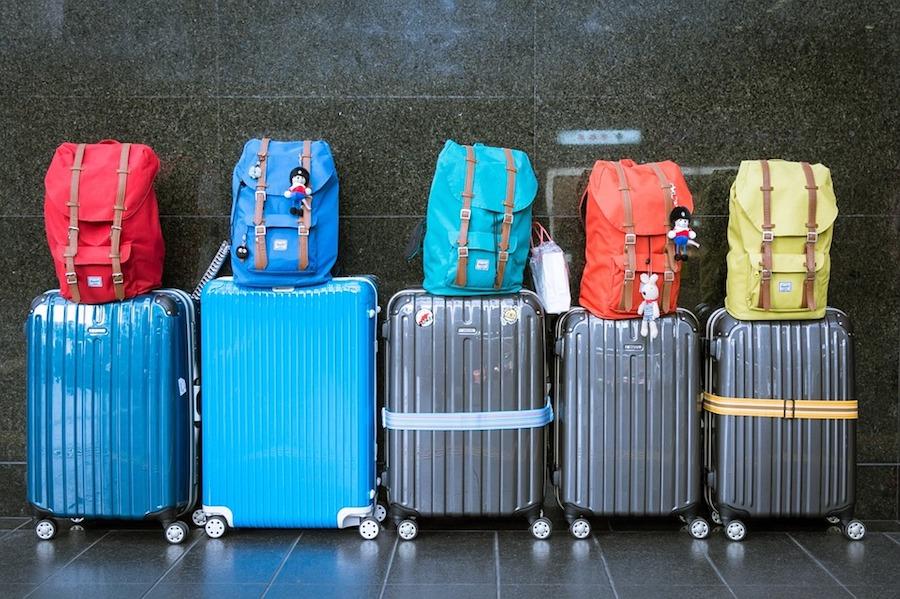
In line with establishing proper intention, we advise you not to be extravagant in your preparations. From our experience, we find some travellers spent an unnecessary amount of expenses on new luggage, clothing and the like for each of their travels. Such excesses are not limited to only quality but also quantity. For example, by bringing a large-sized suitcase when a medium-sized one is sufficient. This will also help you to curb from unnecessary shopping spree expenditures.
Etiquette #4: Seek Blessings And Forgiveness. Bid Family Members Farewell
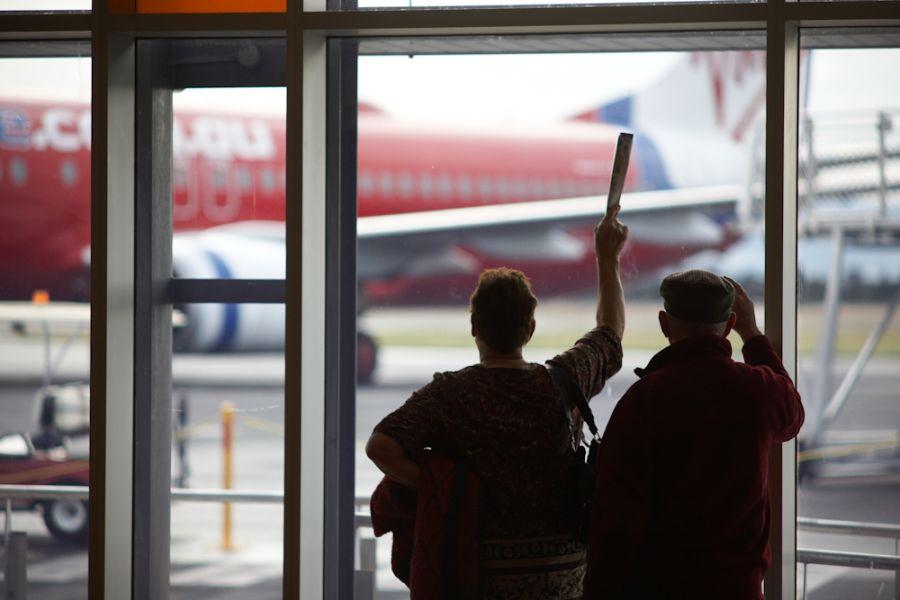
It might seem cliché but it is important before you travel to ask for blessings and forgiveness from your parents, your spouse, your children or anyone who is responsible for you. While seeking the blessings of Allah is paramount, the blessings and prayers of those who are close to you are equally important.
Even on a daily basis, do not leave your home unannounced as you may meet with your death along the way. On the day of your departure, it is also important to bid your family and loved ones farewell.
Etiquette #5: Recite Doa For Protection
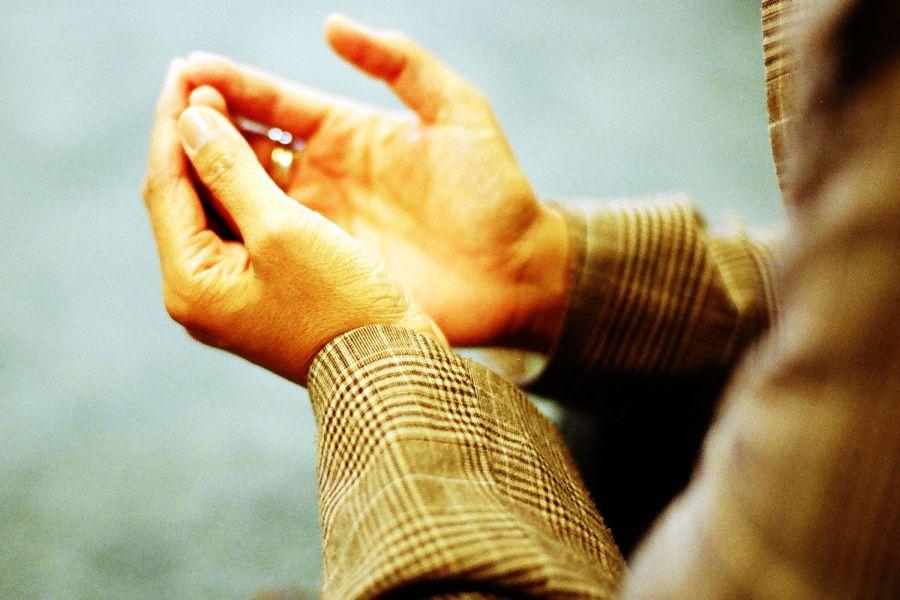
As you leave your house, step out the door with your right feet first and take heed of the following:
“If you recite ‘Bismillāh, tawakkaltu ‘ala Allāh, wa lā ḥaula wa lā quwwata illā billāh’ (In the name of Allah, I seek help from Allah, there is no strength nor means but with Allah) while leaving the house, then you will be told: ‘You are protected and saved. The Satan will leave you’" (Tirmidhi, Abu Dawud)
Etiquette #6: Appoint A Leader
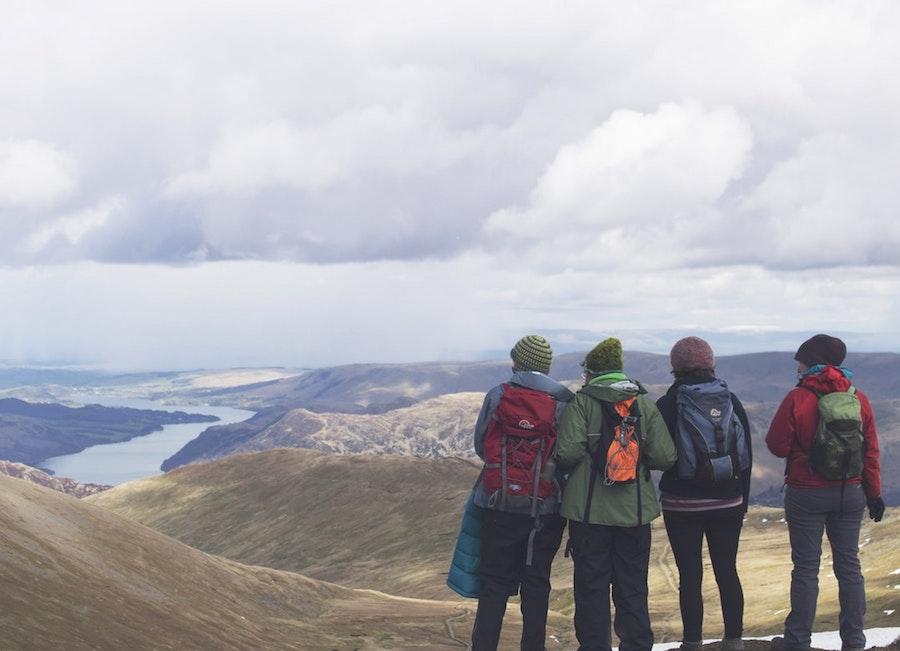
If you travel in a group, you should appoint a leader from amongst you. This does not distract from consensus decision-making, but it is to facilitate and provide leadership during your travel. Abu Sa’id Al-Khudri and Abu Hurairah reported the Prophet as saying: “When three persons set out on a journey, they should appoint one of them as their leader.” (Abu Dawud)
Etiquette #7: Prior Preparation

We advise that you to do some homework on the places that you will be visiting so that you can maximize your benefits. Some recommendations would be to read up a little of the history of your destination, find out which currency you will need (transits included), plug adapters and the prayer times. All this will take unnecessary stress away from your travels.
Etiquette #8: Perform 2 Raka’ah Of Sunnah Musafir
Before you leave the house, you are also encouraged to perform 2 raka’ah of Sunnah Musafir. At the end of it, you can recite whatever doa you wish in your own language.
In addition, you may also recite the following: “Allahumma inni ataqorrabu bihinna ilaika fakh lifni fi ahli wa maali (O Allah! Verily I am near myself to you with this 2 rakaat of prayers. Replace it thus by watching over my family and my property)”
Etiquette #9: Be In A State Of Ablution

Credit: Italo Rondinella on Facebook
Another advantage after performing Sunnah Musafir is that you will leave your house in a state of ablution. There are many merits to always be in a state of ablution, but on a more practical note, it would make it easier for you to re-perform ablution during your journey, particularly with limited water, when you have started the trip with an already valid ablution.
Etiquette #10: Doa For Protection When Visiting A New Place

Khaulah bint Hakim reported that the Prophet said: “Whosoever alights somewhere and says: ‘A’udhu bikalimatil laahit tammati min sharri maa khalaq (I seek refuge with the Perfect Words of Allah from the evil of what He has created), nothing will harm him until he leaves that place. ” (Muslim) So we urge you to memorize and recite this whenever you go to a new place and may you be protected by Allah.
Etiquette #11: Behave And Dress Modestly

We also advise travellers to dress and behave modestly when they travel. It is not only out of respect for the place and people that you visit, but it is to maintain our personal duty to Allah. Avoid comparisons and claiming that only Singapore is the best. Avoid commenting that things are cheaper and worst off in the places that you visit. If you do so, you will never expand your horizons and it will curb your learning process. You will also lack appreciation of the diversity in Allah’s Creations.
Always remember that wherever you go and to whomever you speak, you are always an Ambassador of Islam, whether you are conscious of the fact. Be at your best!
Etiquette #12: Buy Gifts Or Souvenirs
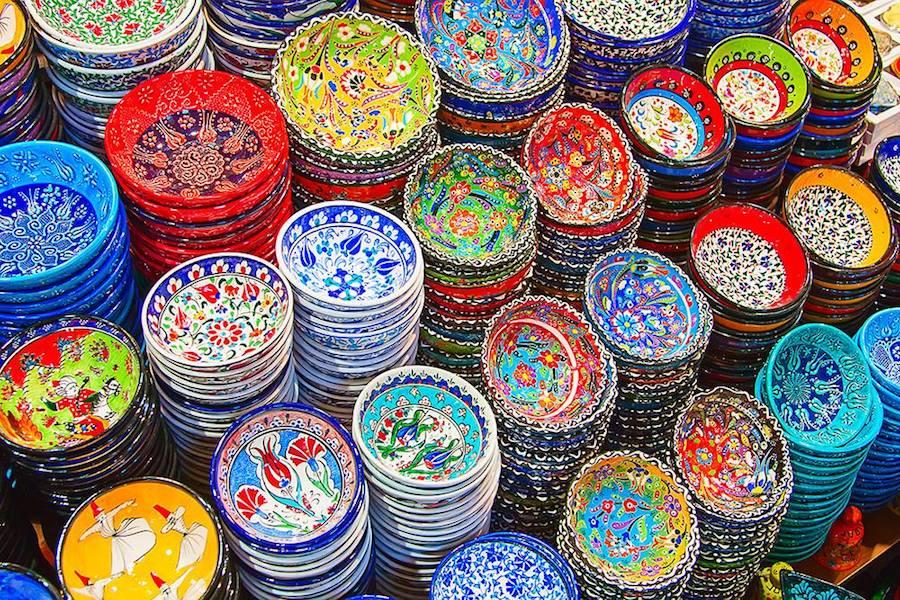
Credit: Tourism & Art & Turkey on Facebook
A final note on Adab: whenever possible, buy some gifts or souvenirs for your family members, close friends or colleagues who have to cover your absence at work. It represents a warm gesture of goodwill of your appreciation for them.
The Prophet said: “Exchange gifts, as that will lead to increasing your love for one another.” (Bukhari)
This post was written by guest blogger, Uztaz Saif-ur-Rahman, the director of Alchemy of Travel Pte Ltd. Find him online at:
Website | Facebook | Instagram
Save to Bucket List

Muslim Girl

10 Essential Islamic Etiquettes for Traveling
“Once a year, go someplace you’ve never been before.” Dalai Lama
Ah, traveling fills the soul and nourishes the spirit to explore the hidden beauty of diversified cultures worldwide. Islam has taught us the essential Islamic etiquette when traveling for us to be the best version of ourselves when we set foot in a foreign place. How wonderful is that? SubhanAllah.
From the two Easts and Wests, Allah Almighty has Created people of different ethnicities, religions, and cultures to widen our weltanschauung, practice humility, and spark our curiosity to learn beyond borders.
Have you traveled anywhere in the world before? If so, what was the experience like, and did you learn something new? Oftentimes we look forward to having a fantastic experience when we travel.
We can’t wait to indulge in the atmosphere, take Insta-worthy pictures to share with our friends, and try out their unique cuisines. But have we ever reflected on whether or not we practice specific etiquette when traveling according to the Islamic teachings as mentioned in the Qur’an and Sunnah?
If you have never thought of it — and it’s normal to overlook this! — here is some essential Islamic etiquette when traveling the next time with your family and friends, InshaAllah.
1. Fulfil Your Responsibilities and Settle Your Debts if Any
Before you begin your journey, fulfill whatever responsibility is required for your role. If you are a parent and will be leaving your children, ensure that your children are left with money and a trusted caretaker. If you are a student, make sure that your assignments are complete prior to your hiatus. If you have any debts to pay, settle them as soon as you can before leaving for an adventure.
It has been reported on the authority of ‘Amr b. al-‘As that the Messenger of Allah (ﷺ) said: “All the sins of a Shahid (martyr) are forgiven except debt.” [Sahih Muslim]
2. Travel with Good Intentions
Everything begins with the right intention, so what is yours? Have you ever pondered on why you engage in traveling in the first place? Is it to seek knowledge from saints and sages in another country? Is it to find inner peace? Whatever reason you have decided must be beneficial for you and should not be blameworthy. Remember, there are a lot of rewards — tenfold in fact — for those who rectify their intentions before performing deeds, InshaAllah.
It is narrated on the authority of Amir al-Mu’minin (Leader of the Believers), Abu Hafs ‘Umar bin al-Khattab (may Allah be pleased with him), who said: I heard the Messenger of Allah (ﷺ), say “Actions are according to intentions, and everyone will get what was intended. Whoever migrates with an intention for Allah and His messenger, the migration will be for the sake of Allah and his Messenger. And whoever migrates for worldly gain or to marry a woman, then his migration will be for the sake of whatever he migrated for.” [Bukhari and Muslim]
3. Find Good Company to Travel with
It has always been a dream for some people to travel alone. Just like in the movie Eat, Pray, Love , the main character found wisdom and gained experience traveling alone…but unfortunately, it is not encouraged for Muslims to embark on a journey alone for safety reasons. There’s a lot that could go wrong when we travel to a foreign place we’ve never set foot on!
Ibn ‘Umar (May Allah be pleased with them) reported: The Messenger of Allah (ﷺ) said, “Were people to know of what I know about the dangers of traveling alone, no rider would travel alone at night.” [Al-Bukhari]
Instead, find good company to travel with. This way, it will be easier for you and others to navigate your way safely, and gain a much more insightful experience, InshaAllah.
‘Amr bin Shu’aib (May Allah be pleased with him) reported: The Messenger of Allah (ﷺ) said: “A single rider is (accompanied with) Satan and two riders are (accompanied with) two Satans. Three riders form a group.” [At-Tirmidhi and Abu Dawud]
4. Do Not Go Overboard with Your Expenses
Sometimes our desires get the best of us. We buy things from overseas for the sake of sentimental value. You think to yourself that you never know when you’ll get a chance to visit this country again and justify your splurging.
What started as a “little” treat can quickly become enough silverware, souvenirs, t-shirts, and touristy items to fill a suitcase or two. You might not regret buying all of those…until you look at your bank account.
Is it worth buying all of those things just for the sake of sentimental value and proof that you have gone to this country? You can buy a thing or two, but going overboard with spending is not an encouraged practice in Islam. Islam encourages spending modestly.
To practice essential etiquette when traveling, set and categorize each budget before you embark on your journey. This way you won’t exceed your card limit. For instance, budget set amounts for food, transportation, accommodations, and spending money. With proper planning and execution, you will always have enough money for rainy days, InshaAllah.
“وَءَاتِ ذَا ٱلْقُرْبَىٰ حَقَّهُۥ وَٱلْمِسْكِينَ وَٱبْنَ ٱلسَّبِيلِ وَلَا تُبَذِّرْ تَبْذِيرًا
Give to close relatives their due, as well as the poor and ˹needy˺ travelers. And do not spend wastefully.” [Quran 17:26]
5. Bid Your Family Members Farewell
Death is inevitable, so Islamic teachings are preparing Muslims for the worst-case scenario. One of the proper etiquettes, before we set to travel, is bidding our family members farewell for we do not know what the future holds.
Take this opportunity to gather all our family members, ask for forgiveness and their blessings, and bid them goodbye before you begin your adventure. At the very least, when you have done this, you have already made amends with your family and relatives; let bygones be bygones before you leave.
يَـٰٓأَيُّهَا ٱلنَّاسُ ٱتَّقُوا۟ رَبَّكُمُ ٱلَّذِى خَلَقَكُم مِّن نَّفْسٍ وَٰحِدَةٍ وَخَلَقَ مِنْهَا زَوْجَهَا وَبَثَّ مِنْهُمَا رِجَالًا كَثِيرًا وَنِسَآءً ۚ وَٱتَّقُوا۟ ٱللَّهَ ٱلَّذِى تَسَآءَلُونَ بِهِۦ وَٱلْأَرْحَامَ ۚ إِنَّ ٱللَّهَ كَانَ عَلَيْكُمْ رَقِيبًا “O mankind! Be dutiful to your Lord, Who created you from a single person (Adam), and from him (Adam) He created his wife [Hawwa (Eve)], and from them both He created many men and women and fear Allah through Whom you demand your mutual (rights), and (do not cut the relations of) the wombs (kinship). Surely, Allah is Ever an All-Watcher over you.” [Qur’an 4:1]
6. Recite Essential Du’as before Traveling
There are several du’as you can recite before you leave your home and begin your travel. Always ask Allah Almighty for His Divine Blessings, Protection, and Heavenly Care. Here are some of the du’as you can practice:
Du’a for traveling:
سُبْحَانَ الَّذِي سَخَّرَ لَنَا هَذَا وَمَا كُنَّا لَهُ مُقْرِنِينَ وَإِنَّا إِلَى رَبِّنَا لَمُنْقَلِبُونَ. “Glory unto Him Who created this transportation, for us, though we were unable to create it on our own. And unto our Lord we shall return.” [Qur’an 43:13-14]
Du’a when returning from traveling:
ا للهُ أَكْـبَر، ا للهُ أَكْـبَر، ا للهُ أَكْـبَر،لا إلهَ إلاّ اللّهُ وَحْـدَهُ لا شريكَ لهُ، لهُ الملكُ ولهُ الحَمْد، وهُوَ على كُلّ شَيءٍ قَـدير، آيِبـونَ تائِبـونَ عابِـدونَ لِرَبِّـنا حـامِـدون، صَدَقَ اللهُ وَعْـدَه، وَنَصَـرَ عَبْـدَه، وَهَزَمَ الأَحْـزابَ وَحْـدَه. “Allah is the Greatest, Allah is the Greatest, Allah is the Greatest. None has the right to be worshipped except Allah, alone, without partner. To Him belongs all Sovereignty and Praise, and He is over all things Omnipotent. We return, repent, worship and praise our Lord. Allah fulfilled His Promise, aided His Servant, and single-handedly defeated the allies.” [Al-Bukhari]
Du’a for protection:
بِسْمِ اللَّهِ الَّذِي لَا يَضُرُّ مَعَ اسْمِهِ شَيْءٌ فِي الْأَرْضِ وَلَا فِي السَّمَاءِ وَهُوَ السَّمِيعُ الْعَلِيمُ “In the Name of Allah with Whose Name there is protection against every kind of harm in the earth or in heaven, and He is All-Hearing and All-Knowing.” [Sunan Abi Daud]
7. Offer Sunnah Musafir Prayer
If you do have the time before you travel, offer two raka’ah of Salatul Musafir to ask Allah Almighty for protection, safety, and ultimately His Blessings. You can refer to the du’as above to recite after you’ve completed your prayer. This is recommended and not obligatory for every Muslim.
8. Observe Your Manners and Dress Appropriately
When you visit a foreign place, you should do your best to observe your manners, be humble, and wear appropriately to blend in with the locals. Some of the unfavorable acts include talking or laughing loudly, making insensitive or racist jokes, littering…and the list goes on and on.
When you visit a new place, especially if it is underdeveloped or considered a poor country, do not be arrogant! Always practice humility, and humbleness and do your part to share your wealth with those in need. Remember, whatever you say or do reflects the image of Islam, so do and act your best, InshaAllah.
Abu Huraira (may Allah be Pleased with him) related that the Prophet ﷺ said: The Lord’s commandment for every one of His slaves is, ‘Spend on others, and I will spend on you’. [Bukhari, Muslim]
9. Don’t Forget to Buy Souvenirs
Fancy some unique trinkets to give your loved ones? Buy them and give them as gifts to your friends and family! Little acts of kindness go a long way, and this act will let them know you are thinking about them and appreciate their existence, mashaAllah.
The Prophet ﷺ said: “Exchange gifts, as that will lead to increasing your love for one another.” [Bukhari]
Asmah (may Allah be Pleased with her) related that the Prophet ﷺ said: Spend, and do not count, lest Allah counts against you. Do not withhold your money, lest Allah withholds from you. Spend what you can. [Bukhari, Muslim]
10. Learn Something New
Explore the world with an open mind. Begin the first step with the right intention; to gain knowledge for the sake of Allah Almighty and His Messenger, Peace, and Blessings be upon him. Sometimes, all we care for is the thrill to experience a whole different world in another country and nothing more. Does that really fully satisfy us as Muslims? Do we not want to seek anything else other than the thrill?
This is a great time for us to learn something new from someone or something we observe in another country. Just like the saints and sages in the past who have embarked on spiritual and insightful journeys to explore new realms of knowledge in the hidden parts of the world, we too should emulate such excitement to embark on the quest for ‘ilm.
Abu Huraira (may Allah be Pleased with him), reported: The Messenger of Allah ﷺ said: “The best of you in Islam are those with the best character if they have religious understanding.” [Musnad Ahmad]
In retrospect, going on a journey to travel and explore the beauty of the world is in fact recommended and encouraged in Islam. It is a means to open our eyes to new possibilities, widen our perspective and sharpen our wisdom to become more virtuous and knowledgeable Muslims.
If you were given an opportunity to go somewhere around the world, where would you go? Why? What are some of the places you would like to go at that particular place? How do you think you going to that country would benefit you? Ask these questions yourself and you will find an answer within you, InshaAllah.
By Lily Syahirah Ramlan
About Islam
- # Quran 382 Articles
- # Spirituality 382 Articles
- # Discovering Islam 382 Articles
- # Shariah 382 Articles
- # Videos 382 Articles
- # Family & Life 382 Articles
- # Fatwa & Counseling 382 Articles
- # Muslim News 382 Articles
- # Youth Q & A 382 Articles
- # Donate 382 Articles
- Ask the Scholar
- Morals & Manners
Etiquette of Travelling in Islam
Wa `alaykum as-Salamu wa Rahmatullahi wa Barakatuh.
In the Name of Allah, Most Gracious, Most Merciful.
All praise and thanks are due to Allah, and peace and blessings be upon His Messenger.
In this fatwa:
The Prophet stated some etiquette and manners every Muslim should follow in case of travelling:
" title="Advertise and Market to Muslims" target="_blank">Ads by Muslim Ad Network
- It is recommended to recite the dua` of traveling
- It is Sunnah to offer two Rak`ahs before traveling.
- It is Sunnah to make du`a before leaving your house.
In his book Al-Fiqh Al-Islami wa Adillatuhu (Islamic Jurisprudence and Its Evidences), Dr. Wahbah Az-Zuhayli , head of the Dep. of Islamic Jurisprudence at the Faculty of Shari`ah, Damascus, mentions a number of recommended acts that a Muslim should do when he or she sets out on a journey or when traveling. Here are some of them:
Du`a of traveling
Ibn `Umar (may Allah be pleased with him) reported, “When the Prophet (peace and blessings be upon him) mounted his camel with the intention of setting out on a journey he would say thrice:
“ Alhamdulillah, Subhaan Allah, Allahu Akbar. Subhan Alladhi sakhara lana hadha wama kunna lahu muqrineen, wa inna illa rabinna lamunqalibun. Allahumma inna nas’alluka fi safarina hadha al-Birra wat-taqwa, wa mina al-` mali ma tarda. Allahumma antas-sahibu fis-safar, wal khaleefatu fil-ahli wal walad. Allahumma inni `A`udh bika min wo`athaa’i-s-safar, wa ka’abatil manzhar, wa su’il munqalbi fil-mali wal al-Hali. “
“ All praise and thanks are due to Allah; glory be to Allah; Allah is Greatest. Glory be to Him, Who has made all this (transportation) subservient to our use – and we will for sure return to our Lord. It is unto our Lord we must turn. O Allah, we beseech You to grant us righteousness and piety in our journey; and to help us do nothing but good deeds. O Allah, You are the Companion in traveling and the Protector of those we left behind. O Allah, I seek refuge in You from the hardships of traveling, and from the change in my appearance (as a result of tiredness), and from harm befalling my family or wealth. ”
On his return journey, the Prophet (peace and blessings be upon him) used to say the same du`a’ and then adds, “ Aayibuna, Ta’ibuna, `Aa’iduna, li-rabbina haamidun (returning, repenting, worshiping, and thanking our Lord.”
Offering the Sunnah Salah of Traveling
It is Sunnah to offer two Rak`ahs before traveling . It is preferable to recite Surat Al-Kafiroon in the first Rak`ah and Surat Al-Ikhlas in the second. On finishing the prayer, it is recommended to recite Ayat Al-Kursi (verse 255 of Surat Al-Baqarah), Surat Quraysh (Chapter 106) as well as Surat Al-Ikhlaas (Chapter 112)) and the two protective Surahs (Al-Mu`awidhatayn – Al-Falaq and An-Naas, or chapters 113 and 114). Then you should pray to Allah to fulfill any of your worldly needs.
You should ask Allah to make traveling easy for you and grant you success in the trip you are going to take. On sitting up, you can say the following du`a ‘:
“ Allahumma ilayka tawajahtu, wa bika i`tasamatu, Allahumma ikfni ma ahmmanni wa malam ahtamma bihi, Allahumma zawidni at-taqwa waghfir li dhanbi “
(O Allah, to You do I resort, and upon You do I depend. O Allah, I commit to you all what occupies my mind and what does not. O Allah grant me righteousness, and forgive me my sins.)
Du`a on Leaving the House
It is Sunnah to make du`a before leaving your house. It is reported that the Prophet (peace and blessings be upon him) used to say, when leaving his house: “ Allahumma inni a`oodhu bika an addilla aw uddal, aw adhilla aw uthalla, aw athlima aw uthlama, aw ajhala aw yujahala `alayya. ”
(O Allah, I seek refuge in You from going astray or causing one to go astray, from humiliating someone or being humiliated by anyone, from wronging or being wronged, from abusing or being abused.)
May Allah guide all of us to what pleases Him.
Allah Almighty knows best.
Privacy Overview
Travel Belles
Travel For Adventurous Women
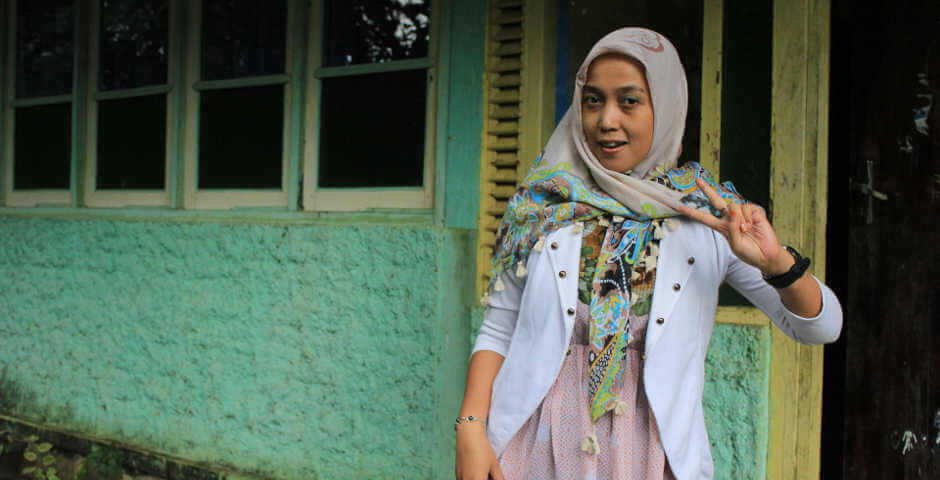
Minding Your Muslim Manners | Muslim Etiquette 101
Editor’s note: Jody Hanson lived in Nigeria for two years, spent 18 months in Morocco (See our beautiful photo essay of Marrakech) and has travelled in a number of Muslim countries. Along the way, she committed more faux pas than she can remember—all good learning experiences in Muslim etiquette, of course, in her effort to become bi-cultural.
Salamalicum
God be with you الله يكون معك. If you are going to travel in the Muslim world, set aside your familiar occidental habits and embrace the local etiquette. A few simple rules will help you blend in and better able to immerse in the local culture. To get you started, here are some I learned the hard way.
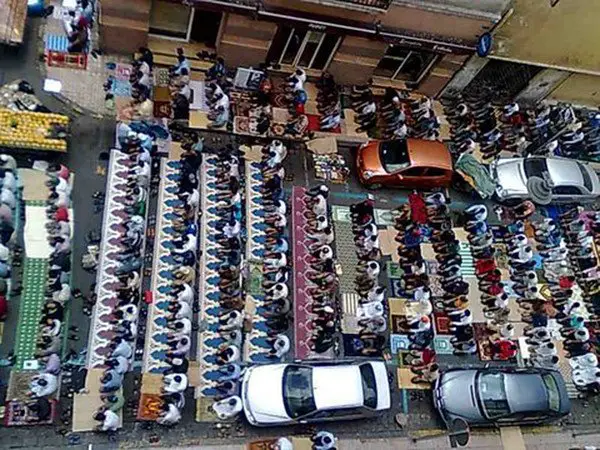
The first and foremost rule in the Islamic world is to never, ever, EVER – got that? – use your left hand for anything.
Tie it behind your back and let it atrophy.
It is only for the toilet and nothing else. People who are sinister – the technical term for being left-handed – need to learn to eat with their right hands as otherwise, they spoil the food (eaten from a communal bowl) for everyone.
You may also like: Marrakech Photo Essay
The reason Sharia law dictates cutting off the right hand of a thief is so that he can never again eat with people. Think about it: would you dig into a shared platter with someone who had just stuck his hand in a dirty toilet?
If a man – specifically in West Africa — asks if he can be your “friend” firmly, but politely, decline unless you want to share your bed.
The concept of a platonic relationship between a man and a woman in the Muslim world simply doesn’t exist. As a western woman, you can be distantly polite to the men you meet or work with. Anything more, however, is quickly interpreted as showing interest and that will get you far more attention than you want – or need.
Get used to couscous on Friday if you are in North Africa
You may also like: Vegetarian Couscous From Tunisia
Think of it as the Best Southern BBQ of the area – once in a while is fine, but every week at the same time and the same place can get tedious. Also, expect a cup of yogurt to go with it. Drink every drop, as it will settle your stomach.
Embrace the call to prayer. The first time you hear “Alllllaaaaahhhhh” at 05:30 it will jar you from your sleep. But as you get to know the calls to prayer – daybreak, about 11:00 or so, 14:30-ish, somewhere about 17:00 and at nightfall – you can quit wearing your watch and move to the beat of what is happening around you. Listen and download.
Cover thy shoulders – in North Africa – and don’t even think about baring your legs above mid-calf in the sub-Sahara.
Okay, okay, so naked breasts are acceptable in rural West Africa, as they aren’t sexy.
But now that we have the rules of acceptable clothing established, stay covered and your life will be much easier. Burkas are optional for western women, even in Saudi Arabia.
Forget the diet.
Avoid Weight Watchers, Jenny Craig and whatever else ‘skinny’ is in V ogue these days.
Larger western women — read “obese” with a rear end that is at least three ax-handles wide – should go to East or West Africa and be revered as sex symbols.
In Nigeria, the Ibo send young women to a “fattening house” where they lay around all day and eat high-carb foods, such as pounded yam and egusi soup. The objective is to get them as pudgy as possible so that they command a high “bride price.” Thin? Forget it.
Only poor women are that way from working in the fields all day and not consuming enough calories to sustain their body weight. If you can learn to flip one bottom cheek after the other as you walk down the street you will – literally – stop traffic. Size 20 plus of the world unite! You are adored in Africa.
Keep your feet tucked under you at all times. In the Arabic world, the sole of the foot is the most offensive part of the body.
(Think of all the footprints up and down the Gadaffi monuments.) So when you are sitting around eating couscous on Friday, make sure you keep your feet under you so they aren’t pointed at anyone. An effective formula is to lower yourself on top of your feet, so as to be sure not to offend.
Give to beggars
The Qur’an dictates that you should donate 10 percent of your money to charity.
The delightfully honest concept about giving in the Muslim world is that it has to be anonymous or it doesn’t count. And that spares us the gag-puke photo opportunities of the western rich and famous being “benevolent.”
Keep small change with you and spread it around. Pick your favourite beggars and remember that they are proving a service: they make you feel good that you aren’t in their place. So give.
Wash your hands before you eat
You may also like: Discovering Indonesian Food In Bali
Muslims do it automatically because it is a hadith (rule). The sanitizer that has become so popular among travelers – doesn’t quite replace soap and water.
Do not waste. Ever. If you can’t eat the food served at lunch, the servants – or the beggars or the people in the street – can. So pass it on. Get takeaway bags rather than leaving leftovers to be thrown away.
If you want a true cross-cultural experience you will never forget, embrace Ramadan and/or the sheep killing festival. Avoid them if you want a holiday.
After you being to feel the rhythm and reason of the Muslim world, the customs and etiquette will begin to make sense. You may not agree with what is happening around you, but that matters little in the world where all you really need to know is where you are positioned in relation to Mecca.
Enjoy the challenge of learning and practicing Muslim etiquette, if and when you visit. It has enriched my life.
All photos property of and by the author.
Pin For Later
Related posts:, about the author.
Jody Hanson
- Jody Hanson https://www.travelbelles.com/author/jody/ How to Pack Like a Travel Belle Pro
- Jody Hanson https://www.travelbelles.com/author/jody/ Track Your Travel Belle Trips
- Jody Hanson https://www.travelbelles.com/author/jody/ Wearing Henna Art in Morocco
- Jody Hanson https://www.travelbelles.com/author/jody/ Confessions And Revelations Of A Bag Lady
8 thoughts on “Minding Your Muslim Manners | Muslim Etiquette 101”
This is so interesting and informative. Being left handed, I would have a difficult time not using my left hand to eat.
Brilliant article, Jody. I’ve had no experience at all in these parts of the world, and I’m fascinated by the things you’ve learned. 🙂
Fabulous article Jody! Your article reminded me of my own travels through Syria, Jordan and Egypt. When I returned home, I missed the call to prayer so much. Plus, the fact that Friday is the equivalent of Sunday in the Western world. I arrived in Syria on a Friday without realising this! Being left-handed did bring it’s obvious challenges for me, but I slowly but surely trained myself. I got better as I went along 🙂
Thanks for the comments — much appreciated. Here is a link to the call to prayer from Egypt if you want to check it out — http://www.islamcan.com/audio/adhan/index.shtml . Brought back some great memories.
Cheers, Jody
I have visited 35 Muslim countries during my life as a travel writer and photographer, and congratulate this accurate article on Muslim courtesies and customs.
My new book, with chapters on Yemen, Morocco, Pakistan, Iraq and other countries is an account of my personal experiences as a freelance photojournalist when only one of a thousand and one problems was that I was a western woman, working in a man’s world. 78 photos, 7 maps. Available online via http://www.travelswithmyhat.com
How do I address a letter or an email?
Hi Neil, this might help: https://arabiconline.eu/email-letter-signatures-arabic/
I thoroughly enjoyed reading this! I have been working to learn Arabic so that I could take a trip, and I think I got so lost in the language I forgot about learning the other details that will make the trip better. Thank you so much!
Leave a Comment
- Privacy Policy
- Terms & Conditions
- Jummah Schedule
- සිංහල පිටුව
- தமிழ் பக்கம்
- HAJJ and UMRA
Sri lanka Muslims Web Portal Diversity and Inclusiveness
- UN motion after Sweden Quran burning: How did your country vote?
- Centre for Islamic Studies Condemns Horrific killing and Extremism in All Forms
- How the US broke up the Muslim world By Jahangir Mohammed
- Palestinian crisis and the see-no-evil diplomacy of the US by Ameen Izzadeen
- Israel’s endless war crimes in Gaza! Backed by Champions of human rights in US and Europe By Latheef Farook
THE 12 ETIQUETTE’S OF TRAVELLING, ACCORDING TO ISLAM
Sailan Muslim Foundation Biz Page , Halal Tourism Leave a comment 1,393 Views
Introduction: Honoured Status Of A Traveller
Abu Hurairah reported that the Messenger of Allah said: “ Three supplications are answered without doubt – the supplication of the oppressed, the supplication of the traveller, and the supplication of the parent for his son. ” (Tirmidhi, Abu Dawud) If such be the lofty status of a traveller, it must only mean that travelling in Islam has a higher purpose. If that is so, we must exemplify some adab (etiquette) while travelling as a form of responsibility and accountability to ourselves, to those whom we leave behind and to those whom we will meet on our journeys. This is to ensure that Allah’s Blessings accompany us throughout.
Credit: Giphy
In this small effort, surely we cannot exhaustively list all the adabs and etiquettes of a traveller, but suffice for us to share some practical tips with you.
Do note that this is an opinion piece by Uztad Saif-ur-Rahman (Alchemy of Hippie-ness).
Etiquette #1: Fulfill All Your Responsibilities Before You Travel
Before embarking on your journey, ensure that all your responsibilities are fulfilled until the day you return. This could be in the form of any outstanding debt you may owe to someone, or any outstanding job at work that needs to be completed while you are away, or for students who have any assignments and homework due while they are away. Importantly for parents, to ensure that they leave behind enough sustenance for those under their charge while they are away.
The point is, do not make your absence of travel be an excuse for you to escape your responsibilities. It will not only affect your reputation personally but also the reputation of Islam.
Etiquette #2: Intent And Purpose Must Not Be Blameworthy
Generally, as in any deeds in Islam, ensure that the intent and purpose of your travel is not blameworthy. When travelling, do not find loopholes for doing things that are otherwise prohibited when you are not travelling, such as smoking weed.
Etiquette #3: Do Not Be Extravagant In Your Preparations And Expenses
In line with establishing proper intention, we advice you not to be extravagant in your preparations. From our experience, we find some travellers spent an unnecessary amount of expenses on new luggages, clothings and the like for every of their travels. Such excesses are not limited to only quality but also to quantity. For example, by bringing a large-sized luggage when a medium-sized one is sufficient. This will also help you to curb from unnecessary shopping spree expenditures.
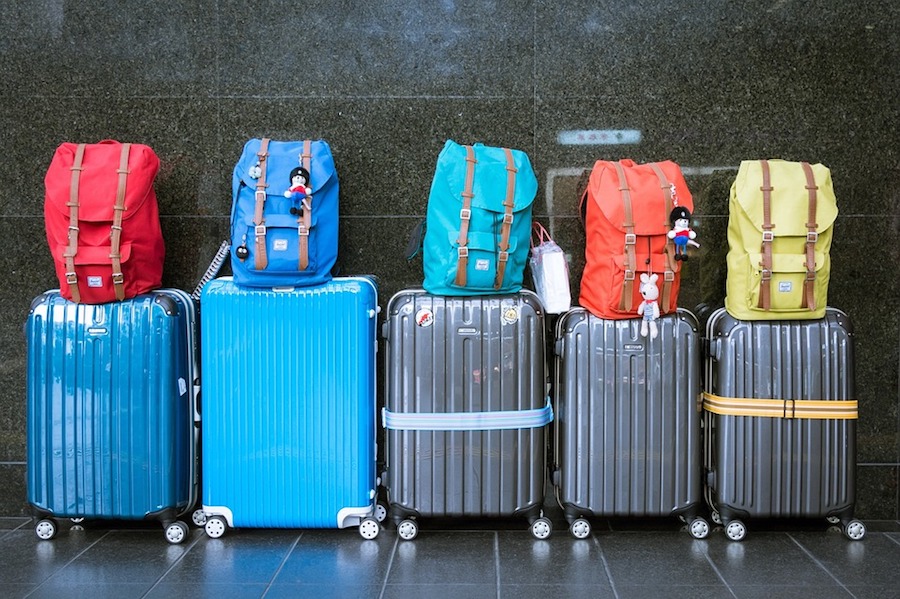
Etiquette #4: Seek Blessings And Forgiveness. Bid Family Members Farewell
It might seem cliché but it is important before you travel to ask for blessings and forgiveness from your parents, your spouse, your children or anyone who is responsible for you. While seeking the blessings of Allah is paramount, the blessings and prayers of those who are close to you is equally important.
Even on a daily basis, do not leave your home unannounced as you may meet with your death along the way. On the day of your departure, it is also important to bid your family and closed ones farewell.
Etiquette #5: Recite Doa For Protection
As you leave your house, step out the door with your right feet first and take heed of the following:
“If you recite ‘Bismillāh, tawakkaltu ‘ala Allāh, wa lā ḥaula wa lā quwwata illā billāh’ (In the name of Allah, I seek help from Allah, there is no strength nor means but with Allah) while leaving the house, then you will be told: ‘You are protected and saved. The Satan will leave you’” (Tirmidhi, Abu Dawud)
Etiquette #6: Appoint A Leader
If you travel in a group, you should appoint a leader from amongst you. This does not distract from consensus decision-making, but it is to facilitate and provide leadership during your travel. Abu Sa’id Al-Khudri and Abu Hurairah reported the Prophet as saying: “ When three persons set out on a journey, they should appoint one of them as their leader. ” ( Abu Dawud )

Etiquette #7: Prior Preparation
We advice that you to do some homework on the places that you will be visiting so that you can maximize your benefits. Some recommendations would be to read up a little of the history of your destination, find out which currency you will need (transits included), plug adapters and the prayer times. All this will take unnecessary stress away from your travels.

Etiquette #8: Perform 2 Raka’ah Of Sunnah Musafir
Before you leave the house, you are also encouraged to perform 2 raka’ah of Sunnah Musafir. At the end of it, you can recite whatever doa you wish in your own language.
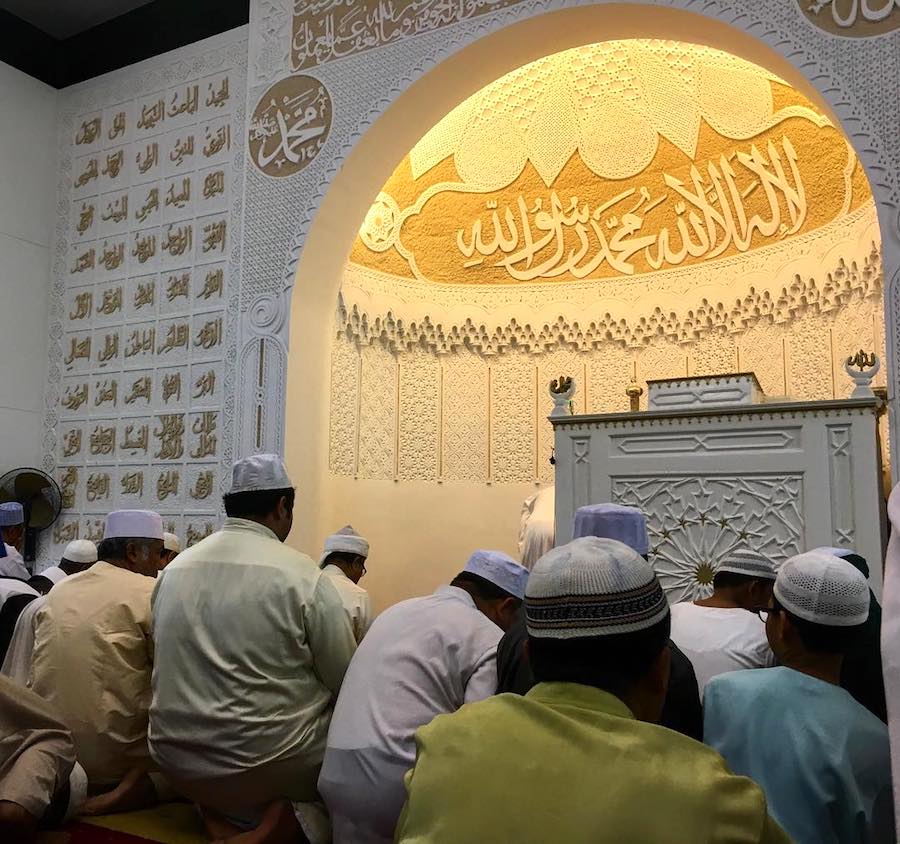
Credit: alchemyofhippieness on Instagram
In addition, you may also recite the following: “ Allahumma inni ataqorrabu bihinna ilaika fakh lifni fi ahli wa maali (O Allah! Verily I am near myself to you with this 2 rakaat of prayers. Replace it thus by watching over my family and my property) ”
Etiquette #9: Be In A State Of Ablution

Credit: Italo Rondinella on Facebook
Another advantage after performing Sunnah Musafir is that you will leave your house in a state of ablution. There are many merits to always be in a state of ablution, but on a more practical note, it would make it easier for you to re-perform ablution during your journey, particularly with limited water, when you have started the trip with an already valid ablution.
Etiquette #10: Doa For Protection When Visiting A New Place
Khaulah bint Hakim reported that the Prophet said: “Whosoever alights somewhere and says: ‘A’udhu bikalimatil laahit tammati min sharri maa khalaq (I seek refuge with the Perfect Words of Allah from the evil of what He has created), nothing will harm him until he leaves that place. ” (Muslim) So we urge you to memorize and recite this whenever you go to a new place and may you be protected by Allah.
Etiquette #11: Behave And Dress Modestly
We also advice travellers to dress and behave modestly when they travel. It is not only out of respect for the place and people that you visit, but it is to maintain our personal duty to Allah. Avoid comparisons and claiming that only Singapore is the best. Avoid commenting that things are cheaper and worst off in the places that you visit. If you do so, you will never expand your horizons and it will curb your learning process. You will also lack appreciation of the diversity in Allah’s Creations.

Credit: dalilalily on Instagram
Always remember that wherever you go and to whomever you speak, you are always an Ambassador of Islam, whether you are conscious of the fact. Be at your best!
Etiquette #12: Buy Gifts Or Souvenirs
A final note on Adab: whenever possible, buy some gifts or souvenirs for your family members, close friends or colleagues who have to cover your absence at work. It represents a warm gesture of goodwill of your appreciation for them.
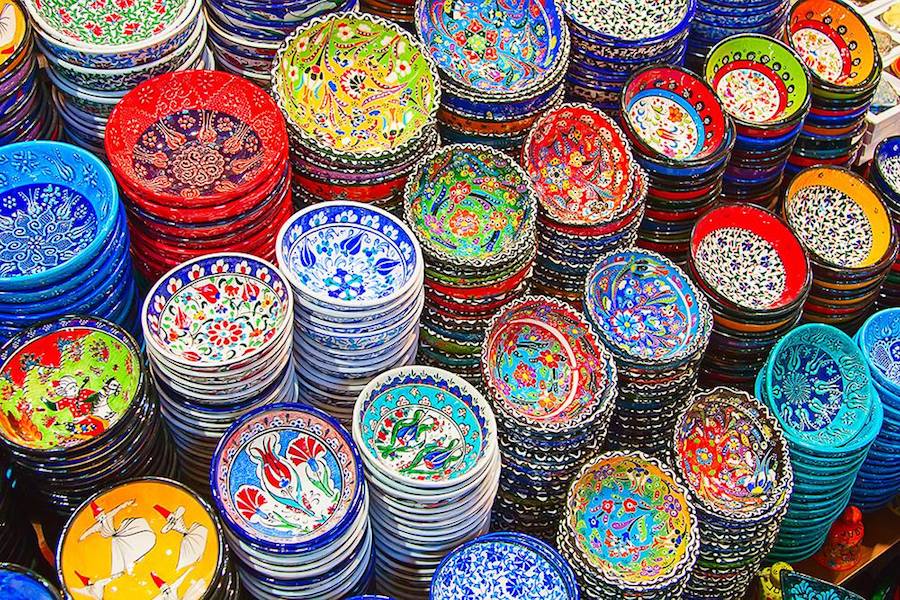
Credit: Tourism & Art & Turkey on Facebook
The Prophet said: “ Exchange gifts, as that will lead to increasing your love for one another. ” (Bukhari)
This post was written by guest blogger, Uztaz Saif-ur-Rahman, the director of Alchemy of Travel Pte Ltd. Find him online at:
Instagram | Facebook | Website
Source: https://www.havehalalwilltravel.com
Share this:
Tags 12 ETIQUETTE'S OF TRAVELLING Islam Sailan Muslim Foundation travel TRAVELLING ACCORDING TO ISLAM
Related Articles

Soap and Allied Industries (Pvt.) Ltd (SAIL) celebrates 25th anniversary
January 17, 2024

How to get your Tax Identification Number in Sri Lanka (TIN)
January 15, 2024
Thailand’s Tailored Efforts to Attract Muslim Tourists
August 21, 2023

Special commodity levy on dates reduced temporarily
On behalf of the upcoming Ramadan festival, President Ranil Wickremesinghe has issued an order to …
Leave a Reply Cancel reply
This site uses Akismet to reduce spam. Learn how your comment data is processed .
Copyright © 2020 All Rights Reserved by Sailan Muslim Foundation. Designed & Developed by Merge Holdings Pvt Ltd
Privacy Overview
Discover more from sri lanka muslims web portal.
Subscribe now to keep reading and get access to the full archive.
Type your email…
Continue reading

Manners of Visiting
What are the manners of visiting what is the etiquette of visiting in islam.
“My love is true and inevitable for those who do not cut their relations with their relatives and friends.” (Ibn Hanbal, V, 229)
It is the requirement of being a Muslim and the brotherhood of Islam to visit people and ask about their state. Allah the Almighty has declared all Muslims as brothers and ordered them to love and take care of each other. Visiting each other is one of the most significant ways to establish love amongst people. This is why Islam pays importance to it.
Visiting may be for various reasons, like sickness, holidays, birth, or death. There are also visits done just out of courtesy without any apparent reason. Through visits Muslims learn each other’s problems and needs and so they are able to help one another. They also get the chance to share each other’s opinions and experiences. Thus, they can confer their issues with each other and aid in making decisions. Hence people get the feeling that they are not alone in the community so that they can look into the future with hope and confidence. Seeing a believing brother beside one during their happy and sad moments becomes a source of peace and tranquility for them. This is why visiting friends and relatives consist of many benefits. For this reason, Allah’s Messenger (pbuh) always visited his companions. Qais b. Sa’d (r.a.) narrated one of the Prophet’s visits as follows:
“The Apostle of Allah (pbuh) came to visit us in our house, and said:
“Peace and Allah’s mercy be upon you!” My father Sa’d returned the greeting in a lower tone.
I said to my father:
“Do you not grant permission to the Apostle of Allah (pbuh) to enter?”
“Leave him, let him give us many greetings.” The Apostle of Allah (pbuh) then said:
“Peace and Allah’s mercy be upon you!” My father again responded in a lower tone. The Apostle of Allah (pbuh) said a third time:
“Peace and Allah’s mercy be upon you!” Then when the Apostle of Allah (pbuh) was going away, my father went after him and said:
“O Apostle of Allah! I heard your greetings and responded in a lower tone so that you might give us more greetings. The Apostle of Allah (pbuh) returned with him. My father then offered to prepare bath-water for him, and he took a bath. He then gave him a long wrap dyed with saffron or wars and he wrapped himself in it.
The Apostle of Allah (pbuh) then raised his hands and said:
“O Allah, bestow Your blessings and mercy on the family of Sa’d b. Ubadah!” The Apostle of Allah (pbuh) then shared their meals.
When he intended to return, my father brought him an ass which was covered with a blanket. The Apostle of Allah (pbuh) mounted it.
My father said:
“O Qays, accompany the Apostle of Allah.” I said:
“The Apostle of Allah (pbuh) told me to get on the ride.” But I refused.” Allah’s Apostle (pbuh) again said:
“Either ride or go back.” So I went back. (Abu Dawud, Adab, 127-128) In another narration, it was reported that Allah’s Messenger (pbuh) visited a family of Ansar, ate and performed prayer with them, and repeated supplications for them. (Bukhari, Adab, 65)
Allah’s Messenger (pbuh) commanded his ummah to visit the sick and brothers in Islam. In one of his sayings, the Prophet (pbuh) said that:
“Whoever visits a sick or a Muslim brother, a caller addresses him: “What a nice deed you did. For doing this deed, your walk’s reward became good, too. And you prepared a place in Paradise for yourself.” (Tirmidhi, Birr, 64)
Visits should be done for the sake of Allah not for a worldly benefit. Allah the Almighty states that He loves those who sincerely visit each other. In a qudsi saying of the Prophet (pbuh) it is stated that:
“For those who love each other for My sake, and for those who give charity for My sake, and for the righteous ones who sincerely love each other for My sake, and for those who do not cut their relations with their relatives and friends My love is true and inevitable” (Ibn Hanbal, V, 229)
It is possible to count the types of visits advised by Allah and His Messenger (pbuh) from the life of our excellent Exemplar, the Prophet (pbuh) as follows:
1. Visiting the Sick
“He who visits the sick continues to remain in the fruit garden of Paradise until he returns.” Muslim, Birr, 39
Health and sickness are two important means of a test and warning in this world. We should not get heedless and stop thanking and praising Allah the Almighty during our healthy moments. We should also try to get closer to Allah with our prayers and supplications during our times of sickness. Smart believers who appreciate both of these situations will eventually be the profiting ones.
People suffer from various diseases at every age. Diseases are sources of sadness and distress. During such times people want to see their friends and relatives next to them. They want to be consoled by their words and help. If relatives and friends do not visit them the sick person may become sadden by this. Allah’s Messenger (pbuh) ordered everybody to visit the sick. Bara b. Adhib (r.a.) said that:
“Allah’s Messenger (pbuh) ordered us to follow the funeral procession, to visit the sick, to accept invitations, to help the oppressed, to fulfill the oaths, to return the greeting and to reply to the sneezer: saying, “May Allah be merciful on you,” provided the sneezer says, “All the praises are for Allah,”. (Bukhari, Janaiz, 2; Muslim, Libas, 3)
When a person gets sick he/she becomes very sensitive and heartbroken. Allah the Almighty is closer to such heartbroken people. Since Allah the Almighty likes that his servants visit the sick, He considers them as visits done to Him. According to Abu Huraira’s (r.a.) report, Allah’s Messenger (pbuh) states this fact as follows:
“Verily, Allah, the Exalted and Glorious, would say on the Day of Resurrection:
“O son of Adam, I was sick but you did not visit Me.” He would say:
“O my Lord; how could I visit You whereas You are the Lord of the worlds?” Thereupon He would say:
“Did not you know that such and such servant of Mine was sick but you did not visit him and were you not aware of this that if you had visited him, you would have found Me by him? O son of Adam, I asked food from you but you did not feed Me.” He would say:
“My Lord, how could I feed You whereas You are the Lord of the worlds?” He said:
“Did not you know that such and such servant of Mine asked food from you but you did not feed him, and were you not aware that if you had fed him you would have found him by My side?” The Lord would again say:
“O son of Adam, I asked for a drink from you but you did not provide it to Me.” He would say:
“My Lord, how could I provide it to You whereas You are the Lord of the worlds?” Thereupon, He would say:
“Such and such servant of Mine asked you for a drink but you did not provide him with it, and had you provided him with a drink you would have found him near Me.” (Muslim, Birr, 43)
Therefore, servants should think about whom they are visiting and whose orders they are fulfilling. This is why Allah’s Messenger (pbuh) told his companions that when they visited a sick person, they should ask for supplications from him and they should know that the supplication of a sick person was like the prayers of angels. (Ibn Majah, Janaiz, 1)
Visiting the sick means asking about his/her state, consoling him/her, and taking care of his/her needs as much as it is possible. Therefore, visiting sick people becomes a reiterated prophetic custom. Some scholars even think it is obligatory. If no Muslim in the neighborhood visits a sick person of their neighborhood, everybody in that neighborhood becomes responsible. Therefore, visiting a person who is sick becomes a communal obligatory act like feeding the hungry.
Ibn Umar (r. anhuma) narrated an incident in this regard as follows:
“While we were sitting with the Messenger of Allah (pbuh), a person, one of the Ansar, came to him and greeted him. The Ansari then turned back. Upon this the Messenger of Allah (pbuh) said:
“O brother of Ansar! How is my brother Sa’d be Ubada?” He said:
“He is better.” The Messenger of Allah (pbuh) said:
“Who amongst you would visit him?” He (the Holy Prophet) stood up and we also got up along with him, and we were more than ten persons. We had neither shoes with us, or socks, or caps, or shirts. We walked on the barren land till we came to him. The people around him kept away till the Messenger of Allah (pbuh) and his Companions with him came near Sa”d b. Ubada.” (Muslim, Janaiz, 13)
Aisha (r. anha) narrated another incident which explains this wonderful characteristic of the Prophet (pbuh):
“Sa’d was wounded on the day of Khandaq (i.e. Trench) when a man from Quraish, called Hibban bin Al-Araqa hit him (with an arrow). The man was Hibban bin Qais from (the tribe of) Bani Mais bin Amir b. Lu’ai who shot an arrow at Sa’d’s medial arm vein (or main artery of the arm). The Prophet pitched a tent for Sa’d in the Mosque so that he might be near to the Prophet to visit… (Bukhari, Maghazi, 30)
As it can be observed in these reports, Allah’s Messenger (pbuh) was concerned about all kinds of problems which people had. Asking about the problems of the sick, visiting his friends, taking care of the needs of the needy, attending the funerals and performing their funeral prayers, and consoling the people left behind are some of the good behaviors manifested in his life. He would usually be accompanied by some of his companions while performing a social duty like visiting a sick person. Thus, he would discipline them about the matter in question. For being poor and needy is not an obstacle for visiting the sick. On the contrary, this would make people get closer to each other, help each other to take care of their needs, and share the blessings they have.
In visiting the sick there should be no difference between being a Muslim and non-Muslim; acquaintance and stranger; close and far neighbor. Indeed Allah’s Messenger (pbuh) visited a sick Jewish kid and caused him to convert to Islam. (Bukhari, Janaiz, 80)
In his following lines Jalal al-Din Rumi (q.s.) elegantly depicts that visiting the sick actually benefits the visitor himself:
“There is profit in your visiting the sick: the profit thereof is returning to you again. The first profit is that the sick person may perchance be a Qutb and a glorious spiritual king. And if he be not a Qutb, he may be a friend of the Sufí Way; if he be not the king, he may be the cavalier of the host. Deem it, then, incumbent on you to attach yourselves to the friends of the Way, whosoever it may be, and whether he be footman or rider. And if he be a foe to you, still this kindness is good, for by kindness many a foe hath been made a friend; And though he do not become a friend, his enmity is lessened, because kindness becomes the balm for enmity. There are many profits besides these, but I am afraid of being tedious, good friend. The gist (of the matter) is this: be the friend of the whole community (of Sufis): like the idol-maker, carve a friend out of the stone, because the throng and multitude of a caravan will break the backs and spears of the highwaymen. Inasmuch as you have not the heart’s two eyes, O contumacious man, so that you cannot distinguish firewood from aloes wood. (You may despair of finding the true friend of Allah; but) since there exists a treasure in the world, do not grieve: deem no ruined place empty of treasure.” (Mathnawi, II, 2143-2153)
Allah’s Messenger (pbuh) taught some supplications to the sick people. Uthman b. Abu al-‘As Al-Thaqafi reported that he made a complaint of a pain to Allah’s Messenger (pbuh) that he felt in his body at the time he had become Muslim. Thereupon Allah’s Messenger (pbuh) said: Place your hand at the place where you feel pain in your body and say “ Bismillah” (in the name of Allah) three times and say
“I seek refuge with Allah and with His Power from the evil that I find and that I fear” seven times (Muslim, Salam, 67).
Uthman (r.a.) practiced this supplication word by word and said: “I did what the Messenger of Allah taught me. Allah the Almighty blessed me with my health. After that I recommended this supplication to my family and other people.” (Abu Dawud, Tib, 19)
Allah’s Messenger (pbuh) advised to inculcate to people that are about to die to say “La ilaha illa-llah – There is no god but Allah” (Muslim, Janaiz, 1-2)
Companions paid attention to visiting the sick, too.
Some of the principles of manners in visiting sick as follows:
- The visitor should put his hand over the sick’s hand or forehead, and ask “how are you?” The Prophet (pbuh) advised to care closely for the sick. However, the doctor’s orders must be considered in this regard. Also, this principle is not applicable for cases of contagious diseases.
- One should avoid the words and actions which might hurt and depress the sick. Visits should be kept short.
- One should ask the sick if there is anything he/she needs, and if it is needed, one should financially help the sick, too. If it is not going to harm the sick, one may give food and other gifts to the sick. Ibn Abbas (r. anhuma) narrated:
“Allah’s Messenger (pbuh) visited a sick person and asked:
“Is there anything that you would like?” The man said:
“Wheat bread.” Allah’s Messenger (pbuh) told his companions:
“Whoever has wheat bread with him should send it to his brother.” And then he added:
“If your patient wants something from you, let him eat that.” (Ibn Majah, Janaiz, 2)
- A person who is sick may contemplate about death and feel disturbed. It is a nice thing to console such patients with appropriate words, to explain to them that death is an order of Allah and it is inevitable, to explain to them that being ill does not mean its end will be death, and that ailments become compensation for the evil deeds of a servant. According to the narration of Ibn ‘Abbas (r. anhuma): “Allah’s Apostle visited a sick bedouin and said to him, “Don’t worry, Tahur (i.e., your illness will be a means of compensation for your sins), if Allah will.” (Bukhari, Tawhid, 31)
- Praying for the sick and wishing for his/her recovery is one of the manners of visiting the sick. Aisha (r. anha) narrated:
“When any person amongst us fell ill, Allah’s Messenger (pbuh) used to rub him with his right hand and then say:
“O Lord of the people, ease his pain and grant him health, heal him, for You are a Great Healer. There is no healer, but with Your healing Power. Bestow upon this person health so that no sign of the disease could be seen upon him.” (Bukhari, Marda, 20; Muslim, Salam, 46-49)
Salman (r.a.) narrated: “When I was sick, Allah’s Messenger (pbuh) came to visit me. When he was leaving, he prayed for me saying:
“O Salman! May Allah remove your problems, May He forgive your sins, May He give your religion and your body strength until your death (time)” (Haythami, II, 299)
- For some reasons, like distance, etc. if one could not find the opportunity to visit his/her sick brother he/she should at least give them their wishes for a quick recovery through an agent or other means of communication, like a phone call.
2. Offering Condolences
“Believers who are inflicted upon a calamity should think about my death to console themselves and be patient.” ( Muwatta , Janaiz, 41)
Even though the Arabic word “ ta’ziyah ” refers to consoling those who are inflicted upon a trouble, it usually implies to visiting a funeral house and expressing one’s condolences. It is necessary to advise patience to people who are inflicted upon a trouble, remind them to have faith in destiny, and tell them that such troubles are the means of attaining spiritual maturity. Moreover, it might have some effect in consoling them to say that “Allah the Almighty increases His servant’s spiritual rewards because of his suffering.” It is among the most important manners of ta’ziyah to pray for such people by saying “May Allah increase your rewards” and “May Allah bestow upon you the best patience.”
Ta’ziyah can be done by personally visiting the people who experience the hardship or by calling them or sending them a message. Once when Zainab (r. anha), the Prophet’s daughter, sent a message to her father saying that:
“My son passed away. Could you please come to our house?” Allah’s Messenger (pbuh) sent someone along with his greetings to his daughter saying:
“Allah is the One who gives and takes back. Everything has a time in His presence. Tell her to be patient and expect its rewards from Allah the Almighty.” (Bukhari, Janaiz, 33)
Allah’s Messenger (pbuh) said that ta’ziyah was a very important humanistic duty and added that: “Allah the Almighty will clothe a garment of honor upon a believer who visits his brother suffering from a trouble.” (Ibn Majah, Janaiz, 56)
The following letter of the Messenger of Allah (pbuh) to Mu’adh b. Jabal (r.a.) for the death of his son is an elegant and beautiful example of expressing one’s condolences:
“In the name of Allah,
From Muhammad the Messenger of Allah to Mu’adh b. Jabal
May Allah’s peace be upon you
I would like you to know that I praise Allah that there is no god save Him. May Allah increase your reward; may He bestow great blessings and the power of patience upon you. May He let us and you succeed in thanking Him; because our lives, possessions, family and children are His gifts entrusted to us temporarily.
Allah made you happy by giving you that child. Now He takes him back in return for a great reward. If you hope to receive mercy, forgiveness, and guidance from Allah the Most Exalted, be patient. Do not let your grief and pain make your reward disappear. Otherwise you will feel regret. You should know that wailing and complaining cannot bring anything back and remove the grief and pain. What is predestined to happen has happened. Peace (be upon you)!” (Hakim, III, 307)
In addition to consoling a person in grief with words, one may also need to help him with actions. Indeed when the news of Ja’far b. Tayyar’s (r.a.) martyrdom reached the Messenger of Allah (pbuh), he said: “Prepare food for the family of Ja’far for there came upon them an incident which has engaged them.” (Abu Dawud, Janaiz, 25-26)
There is still a custom in Turkey that neighbors bring food to the funeral house for a few days which is a nice reflection of this prophetic advice.
Expressing one’s condolences is an Islamic manner; however continuing to express condolences for more than three days is regarded as objectionable. This is to prevent from keeping the grief which one feels fresh in their mind. Those who are not present at the funeral because of distance are exempted from this rule.
3. Funeral Preparation and Visiting Graves
A. funeral preparation.
“O you who believe! Fear Allah, and let every soul look to what (provision) he has sent forth for the morrow.” (Al-Hashr 59; 18)
The term tashyi’ means to prepare the dead and take the body to the graveyard after the funeral prayer. This is one of the final duties which needs to be done for a believer. Allah the Almighty promises great rewards for this duty.
The Messenger of Allah (pbuh) taught what needs to be done for funeral preparation through his actions. Umm Salama reported:
“The Messenger of Allah (pbuh) came to Abu Salama (as he died). His eyes were fixedly open. He closed them, and then said:
“When the soul is taken away the sight follows it.” Some of the people of his family wept and wailed. So he said:
“Do not supplicate for yourselves anything but good, for angels say “Amin” to what you say.” He then said:
“ O Allah, forgive Abu Salama, raise his degree among those who are rightly guided, grant him a successor in his descendants who remain. Forgive us and him, O Lord of the Universe, and make his grave spacious, and grant him light in it.” (Muslim, Janaiz, 7)
Allah’s Messenger (pbuh) suggested the dead to be washed by loyal believers (Ibn Majah, Janaiz, 8) and asked his followers to pay special attention to the dead, to wash and enshroud them nicely. The rewards of those who wash the dead and do not tell their defects to anybody are stated as follows:
“Allah the Almighty will forty times forgive those who wash the dead and do not tell their defects to anybody. He will clothe those who enshroud the dead with the silk clothes of Paradise. He will give rewards to those who dig graves for the dead as much as the rewards that could be given to someone who places a poor in a house till the Judgment Day.” (Hakim, I, 505-506)
Umm Atiyya reported:
“The Apostle of Allah (pbuh) came to us when we were bathing his daughter, and he told us:
“Begin washing her from her right side. Wash her with water and with the leaves of the sidr [1] , three, five, or seven times, or more than that if you think fit, and put camphor or something like camphor in the last washing; then inform me when you have finished.”
We entwined the hair of the dead daughter of the Prophet into three braids. One braid was entwined in front and the other two were entwined on the sides of the head. When we had finished, we informed him, and he gave to us his (own) under-garment and told us to shroud her in it. [2] (Bukhari, Janaiz, 9, 13, 17; Muslim, Janaiz, 36; Ibn Sa’d, VIII, 34-36)
It is very important to bid our farewell to the dead by going with him till the graveyard, by praying for his soul, and by bearing a positive testimony about him; for Allah the Almighty will treat him in accordance with such testimonies.
It was narrated by Anas bin Malik (r.a.):
“When the Messenger of Allah was with some of his companions a funeral procession passed and the people praised the deceased. The Prophet said,
“It has been affirmed to him.” Then another funeral procession passed and the people spoke badly of the deceased. The Prophet said,
“It has been affirmed to him.” Umar bin Al-Khattab (r.a.) asked Allah’s Apostle (pbuh):
“What has been affirmed?” He replied,
“You praised this, so Paradise has been affirmed to him; and you spoke badly of this, so Hell has been affirmed to him; because you, believers, are Allah’s witnesses on earth.” (Bukhari, Janaiz, 86; Muslim, Janaiz, 60)
It is a reality that people would not easily agree upon praising or speaking badly about a person. This is why we should remember this and act accordingly to make others praise us after we die.
After preparing the body, believers pray to Allah, perform the funeral prayer, say their praises to the Messenger of Allah (pbuh), and ask for forgiveness for the dead. This is a means of mercy for the dead. This is why one should hope that many people will be present at his funeral and pray for him. Awf b. Malik reported that Allah’s Messenger would attend to the funeral prayers and say supplications for the dead as follows:
“Allah’s Messenger (pbuh) led a funeral prayer. Just then I heard him saying the following supplication:
“O Allah! Forgive him, have mercy upon him, give him peace and absolve him. Receive him with honor and make his grave spacious; wash him with water, snow and hail. Cleanse him from faults as You would cleanse a white garment from impurity. Requite him with an abode more excellent than his abode, with a family better than his family, and with a mate better than his mate. Admit him to the Garden, and protect him from the torment of the grave and the torment of the Fire.” When I heard this wonderful supplication, I earnestly desired that I were that dead body. (Muslim, Janaiz, 85)
Allah’s Apostle said,
“(A believer) who accompanies the funeral procession of a Muslim out of sincere faith and who hopes to attain Allah’s reward and remains with it till the funeral prayer is offered and the burial ceremonies are over, he will return with a reward of two ‘qirats’. Each ‘qirat’ is like the size of the (Mount) Uhud. He who offers the funeral prayer only and returns before the burial will return with the reward of one ‘qirat’ only.” (Bukhari, Iman, 35)
Sa’d b. Abi Waqqas reported on the authority of his father that while he was sitting along with Abdullah b. Umar, Khabbab b. Arat, the owner of Maqsura, came and said:
“O Ibn Umar, have you heard what Abu Huraira says?” And then he narrated the following tradition:
“Abu Huraira heard the Messenger of Allah (pbuh) say:
“He who goes out with the bier when taken out from its residence and offers prayer for it and he then follows it till it is buried, he would have two ‘qirats’ of reward, each ‘qirat’ being equivalent to Uhud; and he who, after having offered prayer, (directly) goes back would have his reward (as great) as Uhud”
Ibn Umar (r. anhuma) sent Khabbab to Aisha (r. anha) in order to ask her about the words of Abu Huraira and also told him to come back to him (Ibn Umar) and inform him what Aisha said. (In the meanwhile,) Ibn Umar took up a handful of pebbles and turned them over in his hand till the messenger (Khabbab) came back to him and told (him) that Aisha testified (the statement of) Abu Huraira. Ibn Umar threw the pebbles he had in his hand on the ground and then said:
“We missed a large number of qirats .” (Muslim, Janaiz, 56)
It is recommended that one should carry a casket for ten steps holding each handle thus for the total of forty steps. Carrying the casket for more steps makes the carrier earn more spiritual rewards. The coffin should be carried first from the right side front handle and next right back handle and then from the front and back left handles. Hurrying up with the funeral ceremony is also among the suggestions of the Prophet (pbuh) (Bukhari, Janaiz, 51); because it is not advisable that the corpse of a Muslim should remain withheld among his family. (Abu Dawud, Janaiz, 34)
Coffins should be carried quiescently. When Allah’s Messenger (pbuh) saw people carrying a coffin in haste, he told them “Carry it quiescently.” (Ibn Majah, Janaiz, 15)
Those who follow the funeral procession should avoid unnecessary talks and lower their voices. Even loud remembrances of Allah and recitation of the Qur’an are not considered appropriate. One should contemplate about death and the afterlife.
If it is possible, people should not be on rides. It is considered objectionable to on a ride if it is possible to walk. According to the Thawban’s (r.a.) report, Allah’s Messenger (pbuh) attended a funeral. He saw some people on rides, in order to state the disrespectfulness of this action, he said that:
“Aren’t you ashamed? You go on rides while Allah’s angels are on foot.” (Tirmidhi, Janaiz, 28)
The Prophet said, “Whenever you see a funeral procession, stand up till the procession goes ahead of you.” In another version of the tradition it was stated that, “Till the coffin leaves you behind or is put down.” (Bukhari, Janaiz, 47-48)
b. Visiting Cemeteries
Allah’s Messenger (pbuh) had temporarily forbidden visiting graves, at the time when people were still prostrating before the graves and using them as means of pride and worshipping the idols. Later Jews and Christians turned the graves of their saints into places of worship. Idolatry, too, had begun by showing respect to prominent figures’ graves and statues, and in time they were changed into idols; whereas, Islam’s goal is to place the belief in the unity and oneness of Allah the Almighty into the hearts. After this goal had been achieved, the prohibition of visiting cemeteries had been abolished. Allah’s Messenger (pbuh) said that:
“I forbade you to visit graves, but you may now visit them.” (Muslim, Janaiz, 106)
And the Prophet’s saying, “…Those who wish to visit graves may do so; for visiting graves reminds us of the Hereafter,” (Tirmidhi, Janaiz, 60) emphasizes that the object of visiting cemeteries is to remember the afterlife and be prepared for it.
Visiting the graves of righteous people, parent, and the graves of the close relatives are accepted as recommended ( mandub ) acts. [3] Visiting graves is recommended for men. It is also permitted for women provided that they do not wail, do not show excessive respect towards the graves, and do not tear their clothes up. Hence, the Prophet (pbuh) advised patience to a woman who was crying over her son’s grave, but he did not forbid her to visit. (Bukhari, Janaiz, 7; Muslim, Janaiz, 15) There is also another report that Aisha (r. anha) visited her brother Abdurrahman b. Abi Bakr’s grave. (Tirmidhi, Janaiz, 61)
Ali (r.a.) expressed his concern about the afterlife addressing the dead in a cemetery as follows:
“The houses you left are now occupied by others
Your property is already shared
Others married with your wives
This is what is happening on our side
I wish we could know what is happening on your side
By Allah, if they were allowed to speak, they would say
“…but the best of provisions is right conduct (fear of Allah)…” (al-Baqarah 2; 197) (Ibn Abdilbarr, al-Iqd al-Farid , III, 236-37)
There are great benefits in visiting the graves of righteous people and the graves of the religiously prominent figures. Such visits are allowed provided that one acts consciously, attains necessary lessons, and does not take false creeds during the visit. One day Marwan (r.a.) saw a man who placed his face upon the Prophet’s (pbuh) grave. He thought this was an un-Islamic deed. He took the man by his collar and said:
“What do you think you are doing?” When the man turned his face, Marwan recognized that he was Abu Ayyub al-Ansari (r.a.). When Abu Ayyub (r.a.) saw that Marwan (r.a.) was concerned about the lawfulness of his act, he told him:
“Yes, I know what I am doing. I came to the Messenger of Allah (pbuh) not to his grave stone. I heard the Prophet (pbuh) saying that:
“Do not be worried as long as your religious affairs are taken care of by qualified people. However when unqualified people begin to interfere with them, then you have every right to get worried and cry for the religion.” (Ibn Hanbal, V, 422)
What we understand from Abu Ayyub’s (r.a.) response is that visiting graves is permissible as long as it is done consciously and according to its manners; because this is beneficial both for the visitor and the visited. These benefits can be summarized as follows:
– Visiting graves reminds people of death and the Hereafter, leads them to piety and righteousness, and enables them to attain lessons from it. Those who think about death perform their acts of worship more sincerely. They lose their ambition towards this world, avoid unlawful acts, turn to do righteous deeds, and pay more attention to getting prepared for the afterlife.
“Aisha (r. anha) said that a Jewess came to her and mentioned the punishment that takes place in the grave, saying to her,
“May Allah protect you from the punishment of the grave.” Aisha then asked Allah’s Apostle about the punishment of the grave. He said,
“Yes, (there is) punishment in the grave.” Aisha added , “After that I never saw Allah’s Apostle but seeking refuge with Allah from the punishment in the grave in every prayer he prayed.” (Bukhari, Janaiz, 87; Muslim, Masajid, 123; Nasai, Janaiz, 115)
Allah’s Messenger (pbuh) said that:
“When one of you finishes the recitation of ‘tahiyyat’ at the end of his prayer, he/she should say that:
“O Allah! I seek refuge with You from the torment of the grave, and I seek refuge with You from the trial of the Masih al-Dajjal (Antichrist) and I seek refuge with You from the trial of life and death.” (Muslim, Masajid, 128; See also Muslim Masajid, 130-134; Abu Dawud, Salat, 149, 179; Nasai, Sahv, 64)
Uthman (r.a.) would cry till his beard got wet when he stood by the graves. When he was told:
“You do not cry when you remember Paradise and Hell; but you cry when you remember the grave” he replied:
“Because I heard Allah’s Messenger (pbuh) saying:
“The grave is the first station of the Hereafter. If someone passes it, the following stations will be easier. If he cannot pass it, the rest will be much harder and harsher… None of the scenes I have seen was more fearful and gruesome than the grave.” (Tirmidhi, Zuhd, 5/2308; Ahmad b. Hanbal, I, 63-64)
Bara (r.a.) narrated:
“We were with the Messenger of Allah (pbuh) in a funeral. Allah’s Messenger (pbuh) sat by the grave and began to cry so much that the earth got wet from his tears. And then he said that:
“O Brothers! Get well prepared for the death which everyone will experience.” (Ibn Majah, Zuhd, 19)
Before the prophet Dhu’l Qarnain (pbuh) passed away, he made the following exemplary will for the future generations:
“Wash and enshroud my body. And then place me in a coffin. Just leave my arms hanging outside the coffin. Let my servants come behind me. Load my treasures upon asses so that people can see that I had a magnificent kingdom and wealth in this world; but I left everything behind and I am leaving this world with nothing. All my servants and treasures are staying in this world. Thus they would not be deceived by this lying and temporary world…”
His will was carried out exactly. Muslim scholars interpreted this will as follows:
“I ruled the East and West with the armies following me. I had countless soldiers and servants in my service. None of them went against my orders. The entire world was under my command. I had limitless treasures. But all the blessings of this world are temporary. Just like you see I leave this world and go to my grave empty handed… Possessions of this world stay in this world… You should do the deeds beneficial for the Hereafter… (Osman Nûri Topbaş, Nebîler Silsilesi, II, 17)
– Visiting the graves of righteous peoples, especially the Prophet’s (pbuh) grave, gives the souls relief and makes people feel lofty feelings. Setting off on a journey to visit the Prophet’s grave and the graves of the friends of Allah is recommended ( mandub ). Allah’s Messenger (pbuh) said that, “whoever visits me after my death my intercession will be required for him.” (Bayhaqi, al-Sunan al-Kubra , V, 245)
– Visiting graves strengthens people’s ties with their culture and history. Graves of the prominent figures of history provide a bridge between young generations and their history. The spiritual atmosphere here plays an important role in keeping the religious life robust. The most typical example of this is the cities of central Asia, such as Samarkand and Bukhara, which were under the rule of communist regime for many years.
Visiting graves is also useful for the dead.
– After visiting graves people pray for the salvation, forgiveness, and eternal happiness of the dead. They recite the Qur’an and ask Allah to accept the spiritual rewards of their deeds to be written for the dead. Allah’s Messenger (pbuh) stated that:
“When one of you dies, take him to his grave right away. When you bury him, the person waiting at the side of his head should recite the chapter Fatiha (chapter 1) and the person waiting at the side of his feet should recite the last verses from the chapter al-Baqara (chapter 2.) (Tabari, XII, 340; Daylami, I, 284; Haythami, III, 44)
“…Chapter Yasin is like the heart of the Qur’an. Whoever reads it hoping for Allah’s content and the abode of the afterlife, his sins will certainly be forgiven. Recite the chapter Yasin to your deceased.” (Ibn Hanbal, V, 26)
Ala’ b. Lajlaj narrated that his father Lajlaj, who was one of the companions of the Prophet (pbuh) made the following will at the time of his death:
“When you put me into my grave, say “بِسْمِ اللهِ وَ عَلَى سُنَّةِ رَسُولِ اللهِ” (In the name of Allah and upon the Sunnah of the Messenger of Allah) [4] and throw earth upon my body. Recite the beginning and last verses of the chapter al-Baqara at my grave. Of course I witnessed that Abdullah b. Umar (r. anhuma) had deemed this practice appropriate.” (Bayhaqi, al-Sunan al-Kubra , IV, 56)
Amr b. al-As said when he was about to die: “…When you bury me, fill my grave well with earth, then stand around it for the time within which a camel is slaughtered and its meat is distributed so that I may enjoy your intimacy and in your company ascertain what answer I can give to the messengers (angels) of Allah.” (Muslim, Iman, 192)
Nawawi, who mentioned this narration in his book, reported the following words of Imam Shafii:
“Reciting chapters and verses from the Qur’an is a recommended act in Islam. Reciting the entire Qur’an is better.” (Nawawi, Riyadh al-Salihin , p. 293)
Recitation of the Qur’an is an offering for the dead. It is also confirmed by the authentic traditions of the Prophet (pbuh) and by the consensus of the scholars that the spiritual rewards of the good deeds performed on behalf of the dead will reach him. ( Muwatta, Itq, 13-14; Muslim, Siyam, 155-156; Ibn Hanbal, II, 509; VI, 252) This is also supported by the following verse:
“…Our Lord! Forgive us, and our brethren who came before us into the Faith, and leave not, in our hearts, rancor (or sense of injury) against those who have believed. Our Lord! You art indeed Full of Kindness, Most Merciful.” (al-Hasr 59; 10)
Another tradition in this context was narrated by Ibn Abbas (r. anhuma):
“The mother of Sa’d bin Ubada died in his absence. Sa’d came to the Prophet (pbuh) and said,
“O Allah’s Apostle! My mother died in my absence; will it be of any benefit for her if I give charity on her behalf?” The Prophet said,
“Yes,” Sa’d said,
“I make you a witness that I donated my garden called Al-Makhraf in charity on her behalf.” (Bukhari, Wasaya, 15)
– Planting trees on the gravesite is also a nice thing to do. Plants and trees planted in the graveyards help to reduce the punishment of the dead. (Muslim, Taharah, 111) Ottomans would plant sycamore trees in the yards of institutions and cypress trees in the graveyards. The reason of these choices was that the sycamore tree loses its leaves, and thus is a reminder of death and temporariness; whereas, the cypress is evergreen and it represents the eternity of the afterlife. These practices also helped to protect the environment.
– Sending wreathes to funerals is something objectionable in Islam. The wreath, which is a symbol of the Ancient Greek and Christian world, does not contain any benefit to the dead. It is also a manifestation of resembling non-believers, which is strongly prohibited in Islam. In addition, a lot of money is spent on making a wreath and many flowers are destroyed in the process. Thus, a wreath is a waste and Islam prohibits being wasteful.
Clapping at funeral ceremonies is another objectionable custom of the contemporary world. Such a behavior does not fit into the spiritual atmosphere of the funeral. In this regard, Allah the Almighty reprimands the unbelievers in the Qur’an as follows:
“And their worship at the (holy) House is naught but whistling and hand-clapping…” (al-Anfal 8; 35)
c. Manners of Visiting Cemeteries
– When the visitor arrives at the graveyard, he/she turns his/her face to the graves and greets them as taught by the Messenger of Allah (pbuh):
“Peace be upon you! The abode of the believing people and we, if Allah so wills, are about to join you.” (Muslim, Taharah, 39; Janaiz, 104)
– One should pray for the dead and think about how one day he/she will join them. He/she should approach the graves and turn his/her face to the grave like there is someone alive in it and they will talk. If one is not sick, one should stay standing. If the dead was someone close to him/her, he/she should get very close to the grave; and if was not, he/she should keep some distance between him and the grave and pray.
– Performing ritual prayer in the graveyards and turning them into mosques is a disapproved action. Performing prayer towards a grave is also not accepted in Islam.
– Placing and lighting candles by the graves are not permitted. ( Muwatta , Janaiz, 12-13)
– Sitting on the graves and stepping over them are not permitted. (Muslim, Janaiz, 98)
– One should stay away from talking inappropriate and useless matters in the graveyard. He/she should also avoid walking arrogantly and should act humbly. (Nasai, Janaiz, 100)
– Relieving oneself in the graveyards is forbidden.
– Cutting trees and green plants in the graveyard is disapproved.
– Slaughtering animals next to the graves is objectionable even if it is done for Allah. It is strongly prohibited, if it is done for the dead. There are some scholars who consider this as accepting partners to Allah; because slaughtering animals is an act of worship and acts of worship are done only for Allah the Almighty.
– Circumambulation around the graves, like circumambulating around the Ka’bah, is not permitted.
– Asking for help from the dead and tying strings and pieces of clothes to the grave in order to receive help from the dead are not allowed in Islam and have no benefit to anybody. The body in the grave could not even help himself let alone helping others. However, when asking for something from Allah the Almighty, asking for it for the sake of righteous servants of Allah and visiting their graves is permitted. For instance, it is allowed to say “O Lord! Please grant me my wishes for the sake of Your Messenger, I pray to You with Your Messenger” (Tirmidhi, Daawat, 118; Ibn Hanbal, IV, 138)
An interesting example of this is follows:
After the death of the Messenger of Allah (pbuh) a severe drought in Medina occurred. People came to Aisha (r. anha) and complained. Aisha (r. anha) told them:
“Go to the Prophet’s grave and open a window on the roof of it so that there would be nothing between Allah’s Messenger (pbuh) and the skies.”
After the people fulfilled her advice, rain poured down, everywhere got green, and camels got fat. That year was even called “ ’am al-fatk – year of abundance.” (Darimi, Muqaddimah, 15)
– It is more rewarding to visit graves especially on Fridays or Thursdays and Saturdays. However, one may visit graves on other days, too.
– It is permitted to visit graves at nights. Allah’s Messenger (pbuh) went to the cemetery of Jannat al-Baqi and prayed. (Muslim, Taharah, 39; Janaiz, 104)
4. Manners of Visiting Relatives and Friends
“Whoever is pleased that he be granted more wealth and that his lease of life be prolonged, then he should keep good relations with his kith and kin.” (Bukhari, Adab, 12)
One of the things that Islam emphasizes strongly is “ sila-i rahim .” Sila-i rahim means to strengthen and maintain relationships amongst relatives. If they do not live far away, one should frequently visit his/her relatives, help them, and be concerned with their problems. When they are happy, one should congratulate them, whereas console them at their sad moments. If they live in a distant place, then one should sometimes visit them and keep his/her connection through means of communication. Allah the Almighty says in the Qur’an:
“…and be careful of (your duty to) Allah, by Whom you demand one of another (your rights), and (to) the ties of relationship; …” (al-Nisa 4; 1)
Allah the Almighty attracts our attention to the significance of this issue by mentioning to be careful about Him and to be careful about keeping ties of relationship in the same sentence.
Although, sila-i rahim is primarily about one’s relation with his/her relatives, it also is a responsibility towards neighbors, friends, colleagues, brothers in religion, and other acquaintances. Allah the Almighty says in the Qur’an:
“Serve Allah, and join not any partners with Him; and do good – to parents, kinsfolk, orphans, those in need, neighbors who are near, neighbors who are strangers, the Companion by your side, the wayfarer (you meet), and what your right hands possess…” (al-Nisa 4; 36)
Severing the ties with relatives and treating them badly is a sin in Islam. The extent of goodness varies in accordance with the closeness of the relationship. Allah’s Messenger (pbuh) stated that trustworthiness and kinship would be a measure in crossing over the bridge to Paradise. These qualities will be sent before one and will stand on the right and left of the bridge to Paradise. And they will catch anyone who did not fulfill these responsibilities properly by hooks and throw them into Hell fire. (Muslim, Iman, 329) Therefore, it does not look likely that those who cannot pass the test of establishing good kinship ties will not be able to pass the Path.
The following traditions of the Messenger of Allah (pbuh) manifests how significant this matter in Islam:
The Prophet (pbuh) said,
“Allah created His creation, and when He had finished it, the kinship got up and caught hold of Allah whereupon Allah said,
“What is the matter?” On that, it said, “I seek refuge with you from those who sever the ties of kith and kin.” On that, Allah said, “Will you be satisfied if I bestow My favors on him who keeps your ties, and withhold My favors from him who severs your ties?” On that, it said, “Yes, O my Lord!” Then, Allah said, “That is for you.” Then the Prophet (pbuh) added:
“If you wish, you can recite:
“Would you then if you were given the authority, do mischief in the land and sever your ties of kinship. Such are the men whom Allah has cursed for He has made them deaf and blinded their sight.” (Muhammad 47; 22) (Bukhari, Tafsir, 47; Muslim, Birr, 16)
One should pay much attention to keeping his/her family ties strong. Even if our relatives sever their ties with us, we should keep in contact with them with the Hereafter in mind and listen to their problems. A person said:
“Allah’s Messenger, I have relatives with whom I try to have close relationship, but they sever (this relation). I treat them well, but they treat me ill. I am sweet to them but they are harsh towards me. Upon this he (the Holy Prophet) said:
“If it is so as you say, then you in fact throw hot ashes (upon their faces) and there would always remain with you on behalf of Allah (an Angel to support you) who would keep you dominant over them so long as you adhere to this (path of righteousness).” (Muslim, Birr, 22)
Another saying was narrated by Abdullah bin Amr (r.a.):
“The Prophet said,
“‘Al-Wasil’ is not the one who recompenses the good done to him by his relatives, but ‘Al-Wasil’ is the one who keeps good relations with those relatives who had severed the bond of kinship with him.” (Bukhari, Adab, 15)
Making the visited relatives happy seems as if it only benefits them, but it actually helps the visitor; because visiting relatives not only benefits the visitors in the Hereafter but also in this world, too. The Messenger of Allah explains some of these benefits as follows:
“Whoever is pleased that he be granted more wealth and that his lease of life be prolonged, then he should keep good relations with his kith and kin.” (Bukhari, Adab, 12; Muslim, Birr, 20-21)
In addition to visiting relatives, visiting friends is also very important. Allah’s Messenger (pbuh) would visit his companions. The following tradition nicely explains this issue:
“A man set out to visit a brother in faith in another town and Allah sent an angel on his way. When the man met the angel, the latter asked him,
“Where do you intend to go?” He said,
“I intend to visit my brother in this town.” The angel said,
“Have you done any favors for him?’” He said,
“No, I have no desire except to visit him because I love him for the sake of Allah, the Exalted, and Glorious.” Thereupon the angel said,
“I am a messenger to you from Allah (to inform you) that Allah loves you as you love him (for His sake).” (Ibn Hanbal, II, 292)
The Prophet (pbuh) said, “Allah will give shade, to seven, on the Day when there will be no shade but His. (These seven persons are) a just ruler, a youth who has been brought up in the worship of Allah (i.e. worships Allah sincerely from childhood), a man whose heart is attached to the mosques (i.e. to pray the compulsory prayers in the mosque in congregation), two persons who love each other only for Allah’s sake and they meet and part in Allah’s cause only, a man who refuses the call of a charming woman of noble birth for illicit intercourse with her and says: I am afraid of Allah, a man who gives charitable gifts so secretly that his left hand does not know what his right hand has given (i.e. nobody knows how much he has given in charity), and a person who remembers Allah in seclusion and his eyes are then flooded with tears.” (Bukhari, Adhan, 36; Zakat, 16)
Companions also attached much importance to visiting family and friends. Abdullah b. Mas’ud (r.a.) asked his friends who came to visit him from Kufa to Medina:
“Do you sit and discuss scholarly issues?” They replied:
“We never stop doing that.” Ibn Mas’ud (r.a.) asked again:
“Do you visit each other?” They said:
“Yes, O Abu Abdurrahman, Some of us even go from one side of Kufa to the other side of it to check his friend, if he does not see him for a while.” This answer pleased Ibn Mas’ud (r.a.) and he told them:
“If you maintain this state of yours, then you would live happily and peacefully.” (Darimi, Muqaddimah, 51)
Salman (r.a.), who knew very well how important this issue was, walked from Medina to Damascus just to visit his friend Abu al-Darda. (Bukhari, Adab al-Mufrad , p. 127; no: 346)
There are some manners which need to be observed during such visits. Some of them are as follows:
– Visiting hours should be chosen well. One should avoid going for a visit during the hours of sleep, meals, and working hours.
– If it is possible, the host should be informed in advance. And the visitor should be there exactly at the scheduled time.
– The visitor should wear clean, tidy clothes, and should avoid bad smells and looks.
– Visits should be short. If one is visiting the old, he/she should listen to them carefully and stay away from words, which may hurt them. One should bring good news to them.
[1] The Sidr tree (also known as Lote tree, Christ’s Thorn, Jujube or Nabkh tree. Botanical name: Ziziphus spina-christi) is an ancient tree grown in Arabian Peninsula. It is from the cherry tree family, and its leaves are used in washing a believer’s dead body. (Âsım Efendi, Kâmus , II, 385)
[2] Shroud proper to the teachings of the Prophet (pbuh) consist of three pieces, i.e. izar , qamis , and lifafa , for males and five pieces, i.e. izar , qamis , lifafa , a head cover and a cover for the breasts for females.
[3] Mandub: In Islamic fiqh this term describes the deeds which are recommended for Muslims, but are not necessary for a Muslim to do to be considered faithful. Even though they are recommended deeds, not performing them is not considered a sin, and they are the deeds that Allah’s Messenger (pbuh) sometimes performed and sometimes did not.
[4] This means: “We leave you here in the name of Allah and upon the Sunnah of the Messenger of Allah.”
Source : Osman Nuri Topbaş , Journey To Eternity, Erkam Publications
Dying as Muslims

Death’s Mirror
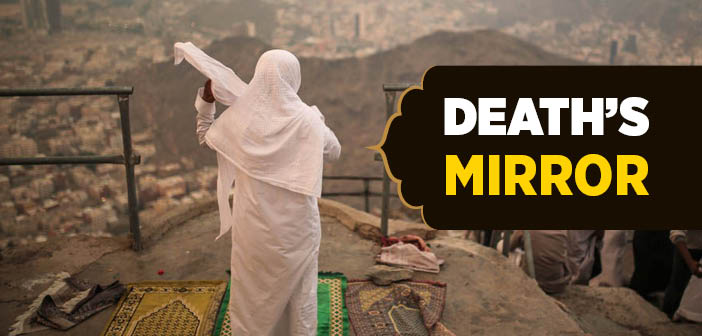
Related Posts
May one fast in order to welcome ramadan, who can fast in ramadan, all about zakat in islam.
Type above and press Enter to search. Press Esc to cancel.
Make Learning
A lifestyle.
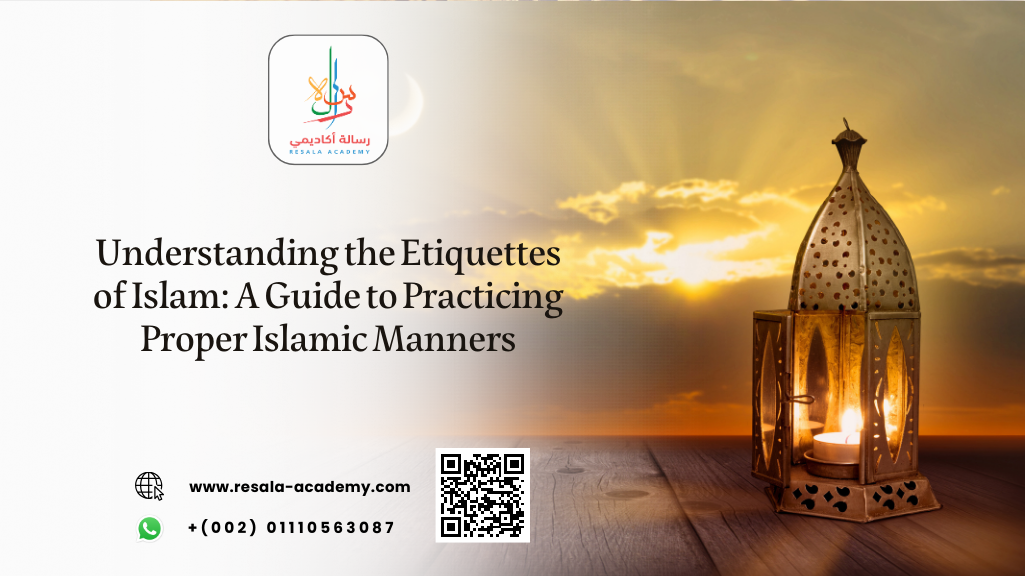
Table of Contents
Understanding the etiquettes of islam: a guide to practicing proper islamic manners.
In this fast-paced world, where social norms and behaviors are constantly evolving, it becomes crucial for us to revisit the age-old principles that guide our actions and interactions. This is especially true when it comes to matters of faith and spirituality. For Muslims around the globe, adhering to the etiquettes of Islam is not only a religious obligation but also a way of embodying their faith in everyday life.
Good manners hold immense importance in Islam, as they reflect an individual’s character and his or her relationship with both Allah and fellow human beings. Understanding this significance lays the foundation for practicing proper Islamic manners – a concept known as “Adab”.
So, let’s delve deeper into the core values, principles, and examples that define these etiquettes to better comprehend how we can incorporate them into our daily lives. Whether it’s through small gestures or meaningful interactions, embracing these teachings will undoubtedly lead us towards becoming better individuals within our communities.
Understanding the Importance of Good Manners in Islam
The Importance of Good Manners in Islam:
1. Reflecting Faith:
Good manners are considered an integral part of practicing Islam, as they reflect a person’s faith and devotion to Allah. It is believed that those who possess good manners have a deeper connection with their Creator.
2. Enhancing Relationships:
Islamic etiquettes emphasize the importance of treating others with kindness, respect, and compassion. By embodying these principles in our interactions, we can foster harmonious relationships within our families, communities, and society at large.

3. Strengthening Community Bonds:
The etiquettes of Islam encourage Muslims to be actively engaged members of their community. Through acts of kindness and consideration towards others, individuals contribute to the overall well-being and unity within their community.
4. Setting Examples for Others:
Practicing good manners not only benefits oneself but also serves as a source of inspiration for others around us. When we demonstrate respectful behavior in our daily lives, it encourages others to follow suit and promotes positive change within society.
5. Attaining Spiritual Rewards:
In Islam, every action performed with sincerity and according to the teachings holds spiritual significance. Engaging in polite conduct towards others brings blessings from Allah and earns rewards both in this life and the hereafter.
By understanding the profound importance that good manners hold in Islam, we gain insight into how they shape our character development as Muslims. These values pave the way for fulfilling relationships with fellow human beings while fostering personal growth on a spiritual level.
The Concept of Adab in Islam
Adab is a fundamental concept in Islam that encompasses proper etiquette, manners, and conduct. It goes beyond simple politeness and extends to all aspects of life. Adab is deeply rooted in Islamic teachings and serves as a guide for Muslims on how to behave ethically and respectfully.
Adab can be seen as an expression of gratitude towards Allah and a way to show reverence for His creations. It is believed that practicing good adab leads to spiritual growth, strengthens relationships, fosters unity within the community, and ultimately brings one closer to Allah.
In Islam, adab extends not only to interactions with fellow human beings but also includes respect for the environment, animals, and even inanimate objects. It emphasizes humility, patience, kindness, empathy, honesty, forgiveness, and sincerity.
Muslims are encouraged to practice adab in their daily lives through various actions such as saying “Bismillah” before starting any task or endeavoring to begin by reciting the Quran. They are also advised to use gentle words when speaking with others and avoid harsh language or gossip.
Furthermore, “Salaam” is commonly used as a greeting among Muslims which means “peace be upon you.” This greeting reflects the values of love peace, hospitality, and goodwill that should permeate their interactions with others.
By embodying these principles of adab both privately and publicly, Muslims strive towards creating harmony, respecting diversity, and maintaining strong bonds within their communities. Adab also encourages individuals to be mindful of their actions and intentions, recognizing that they are accountable for their deeds in the sight of Allah.
In summary, adab is an integral part of Islamic teachings that promotes a harmonious and ethical way of life. It serves as a reminder for Muslims to always strive towards being kind, respectful, and compassionate towards others, and to always maintain a strong connection with Allah.
Core Values and Principles of the Etiquettes of Islam
Understanding the Core Values and Principles of the Etiquette of Islam is essential for every Muslim. These principles guide Muslims in their daily interactions and help create a harmonious society based on respect, compassion, and righteousness.
One of the core values in Islamic etiquette is sincerity. Muslims are taught to perform acts of kindness and good deeds solely for the sake of pleasing Allah, rather than seeking recognition or praise from others. This fosters humility and selflessness in individuals.
Honesty is highly valued in Islam. Muslims are encouraged to always speak the truth and be trustworthy in their dealings with others. Honesty promotes trustworthiness within communities and strengthens bonds between individuals.
Furthermore, patience plays an integral role in Islamic etiquette. Patience helps believers endure trials and tribulations with grace while maintaining a positive attitude. It teaches Muslims to control their anger or frustration when faced with challenging situations.
Respect for elders holds great significance as well. In Islam, showing reverence towards older individuals is considered honorable behavior. Younger generations are expected to display kindness, obedience, and care towards their elders as a way of upholding family values.
Forgiveness is another key principle within Islamic etiquette. Forgiving those who have wronged us enables us to let go of grudges or resentment that may hinder personal growth or relationships with others.
By embracing these core values and principles of Islamic etiquettes into our lives, we can foster unity within our communities while striving towards becoming better human beings guided by faith.
Examples of Proper Islamic Manners: From Daily Practices to Interpersonal Relationships
1. daily practices:.
– Greeting with As-Salamu Alaykum (peace be upon you) and responding with Wa-Alaykum As-Salam (and peace be upon you). – Saying Bismillah (in the name of Allah) before starting any activity, such as eating or entering a room. – Seeking forgiveness from Allah by saying Astaghfirullah (I seek forgiveness from Allah) for any mistakes or sins committed.
2. Personal Hygiene:
– Performing ablution (wudu) before prayer, which involves washing hands, face, arms, and feet. – Keeping oneself clean and maintaining good personal hygiene at all times.
3. Respectful Behavior:
– Speaking politely and using kind words when interacting with others. – Respecting elders by standing up to greet them and listening attentively when they speak.
4. Social Etiquettes:
– Being generous by giving charity and helping those in need. – Visiting the sick and offering prayers for their recovery.
5. Family Relations:
– Showing love, respect, and obedience towards parents. – Treating siblings kindly and resolving conflicts amicably.
Incorporating these etiquettes into our daily lives promotes harmony within ourselves as well as in our relationships with others. These practices reflect the core values of Islam: compassion, humility, patience, justice, honesty, and mercy.
By following these examples of proper Islamic manners, every individual can contribute to building a society that is characterized by kindness, respect, and empathy.
By practicing good manners based on Islamic principles we can create an environment where everyone feels valued, dignified, and loved.
How to Incorporate Islamic Etiquettes into Daily Life?
1. Start with Intention: Every action we take should be done to please Allah and follow His commandments. Before beginning any task, whether it’s eating, working, or interacting with others, make a conscious effort to have a pure intention.
2. Seek Knowledge: Learning about the etiquettes of Islam is essential in incorporating them into our daily lives. Attend Islamic classes or workshops that focus on teaching proper manners and conduct according to Islamic teachings. This will help us better understand how to apply these etiquettes in different situations.
3. Practice Gratitude: Expressing gratitude is an important aspect of Islamic manners. Take time each day to reflect on your blessings and thank Allah for them. Develop the habit of saying “Alhamdulillah” (Praise be to Allah) frequently throughout the day as a reminder of gratitude.
4. Be Mindful of Speech : The way we speak can greatly impact our relationships and interactions with others. Islam emphasizes speaking kindly and avoiding harmful speech such as gossip, backbiting, or lying. Strive to choose your words carefully and speak positively at all times.
5. Establish Routine Acts of Worship: Incorporating routine acts of worship like praying five times a day, reciting the Quran regularly, giving charity, and fasting during Ramadan helps purify our hearts and strengthens our connection with Allah. These acts not only enhance our spirituality but also promote good manners by instilling self-discipline, patience, and compassion within us.
By consciously implementing these practices in our daily lives consistently over time, the etiquettes of Islam become ingrained habits that shape character and improve relationships with both Allah and fellow human beings.
Resala Academy Offers Online Islamic Studies Classes
In today’s fast-paced world, finding time for traditional classroom-based learning can be a challenge. However, thanks to the advancements in technology, Resala Academy now offers online Islamic studies classes that provide a convenient and flexible way for individuals to deepen their knowledge of Islam.
At Resala Academy, students have access to a wide range of courses taught by experienced and qualified instructors. Whether you are a beginner looking for an introduction to Islamic principles or an advanced learner seeking in-depth knowledge on various topics such as Quranic studies or Hadith sciences, there is something for everyone.
The online platform allows students to learn at their own pace and from the comfort of their own homes. With 24/7 access to course materials, lectures, and interactive discussions, individuals can fit their studies around busy schedules without compromising on quality education.
One of the key advantages of enrolling in online Islamic studies classes at Resala Academy is the opportunity to connect with fellow learners from different parts of the world. Through virtual classrooms and discussion forums, students can engage in meaningful conversations about Islam with peers who share similar interests and perspectives.
Whether you are a student seeking personal growth or someone interested in gaining a deeper understanding of Islamic teachings, Resala Academy’s online courses offer a valuable opportunity for spiritual development within your time frame. Take advantage of this innovative approach to learning and embark on your journey toward strengthening your faith while expanding your knowledge base.
1. What are some common Islamic etiquettes that every Muslim should follow?
Some common Islamic etiquettes include saying “Bismillah” before starting any task, using the right hand for eating and drinking, being respectful towards elders, greeting others with a smile and Salam (peace), speaking softly and avoiding vulgar language, dressing modestly according to Islamic guidelines, and practicing honesty in all dealings.
2. How can I incorporate Islamic etiquettes into my daily life?
Incorporating Islamic etiquettes into daily life starts with having awareness and mindfulness of our actions. By consciously applying these manners in our interactions with family members, friends, colleagues, and strangers alike, we can create an atmosphere of kindness and respect around us.
3. Why is it important to practice proper manners in Islam?
Practicing proper manners is not only part of the Sunnah (the teachings and practices of Prophet Muhammad) but also a reflection of faith itself. It demonstrates one’s commitment to following the path set by Allah Almighty. Moreover, good manners contribute to fostering strong relationships within families and communities.
4. Are there specific rules for online behavior in Islam?
While there may not be explicit rules regarding online behavior mentioned in classical texts or scripture directly addressing social media platforms or internet usage as they exist today; however, general principles such as honesty in speech apply regardless of the medium used.
5. Where can I learn more about Islamic etiquette?
To deepen your understanding of Islamic etiquette further or gain knowledge on various aspects of Islam like Quranic studies or Hadiths (sayings/teachings attributed to Prophet Muhammad), websites like Resala Academy offer comprehensive online courses taught by qualified scholars who provide guidance based on authentic sources.
Understanding and practicing proper Islamic manners is not only a fundamental aspect of being a Muslim but also plays a crucial role in fostering unity, harmony, and peace within the community. The etiquettes of Islam encompass all aspects of life, from daily practices to interpersonal relationships.
By embodying the core values and principles of Islam such as kindness, humility, respect, honesty, and patience, we can create an environment that promotes love and compassion towards one another. Through small acts like greeting with salaam (peace), smiling at others, offering help to those in need, showing gratitude for blessings received, and maintaining cleanliness both physically and spiritually – we can exemplify the teachings of Prophet Muhammad (pbuh) who was known for his impeccable manners.
It is important to remember that incorporating Islamic etiquettes into our daily lives requires consistent effort. By seeking knowledge through reputable sources such as Resala Academy’s online Islamic studies classes or consulting with knowledgeable scholars or mentors within our communities; we can deepen our understanding of these etiquettes and strive to implement them in every facet of our lives.
Let us aspire to be ambassadors of good character by upholding the ethics taught by Islam. By doing so, we contribute not only to our personal spiritual growth but also foster an atmosphere where everyone feels valued and respected.
So let us begin this journey towards practicing proper Islamic manners today – making a conscious effort each day to improve ourselves while spreading peace and positivity among those around us. Together, let’s build bridges between hearts based on love for Allah (SWT) – transcending barriers created by differences in culture or background – and uniting under the banner of Islam!
May Allah (SWT) guide us all on this path towards righteousness!
Related Posts

Unveiling the Magic of Noorani 101: Exploring the Enigmatic World of Noorani Qaida
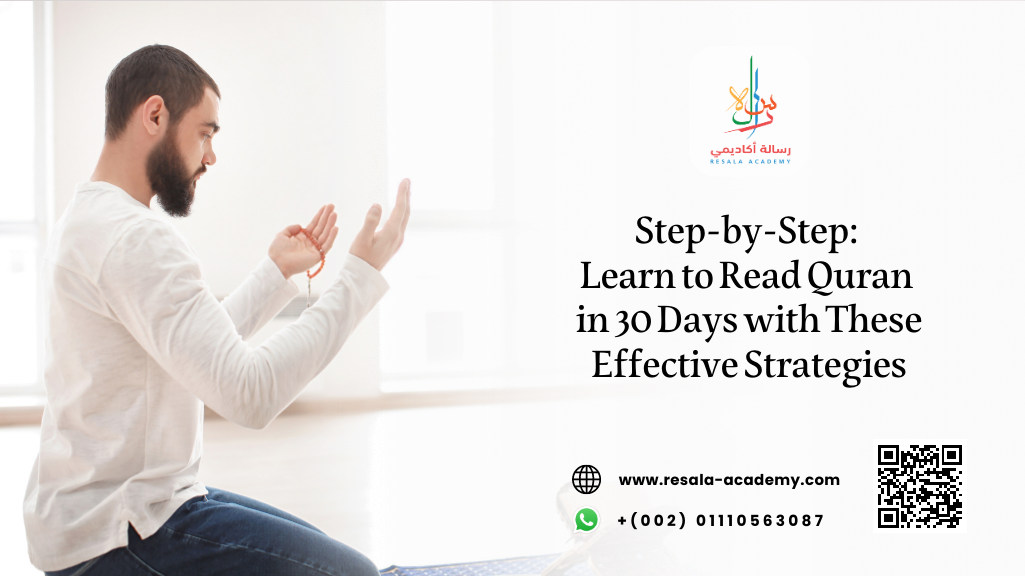
Step-by-Step: Learn to Read Quran in 30 Days with These Effective Strategies
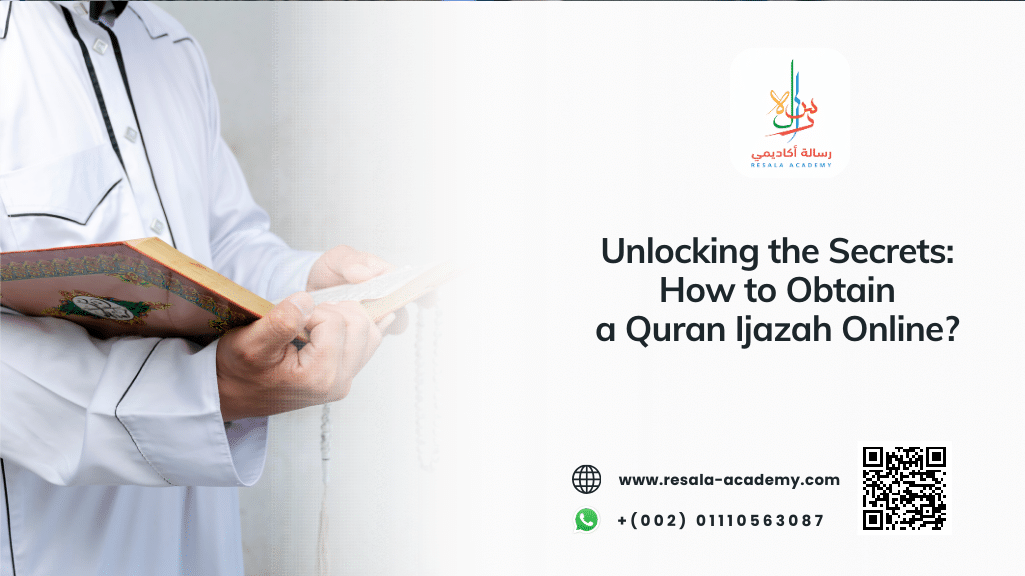
Unlocking the Secrets: How to Obtain a Quran Ijazah Online?

Why Qaida Noorania is the Perfect Starting Point for Learning Arabic and Quran Recitation
Etiquettes pertaining to Travel
What one who is staying home should say to one who is travelling when he departs, and what the one who is travelling should say to the one who is staying home
Visiting the Prophet’s Mosque
It is stipulated that the mahram who is going to travel with a woman should be an adult
Travelling to a land in which evil is widespread
A large amount of money came into his account and he spent it
Should he offer his seat to an elderly person and risk accidentally touching a woman if he stands up on the bus?
The one who has been away from his wife for a long time is told not to come to her suddenly
He does not take his mother to the Sacred Mosque because he fears for her, but she goes with the driver
Ruling on congratulating the pilgrim after his return and decorating the house
Ruling on travelling alone
Log in Create an account
Password should contain small, capital letter and at least 8 characters long
Can't log in to your account?
If you do not have an account, you can click the button below to create one
If you have an account, log in
Create new account Log in
Reset Username or Password
Send feedback.
You can ask your question on the website via this link: https://islamqa.info/en/ask
National Geographic content straight to your inbox—sign up for our popular newsletters here

What you need to know when travelling during Ramadan
Ramadan is the holiest month in the Islamic calendar, but how do you navigate travelling during this time and should you be travelling at all?
Ramadan is the month in which Muslims believe God first spoke to the Prophet Muhammad; when the community won its very first battle and when Muhammad returned triumphant to Mecca in 630 CE.
In the month of Ramadan, Muslims enter a period of pious abstinence during the day, fasting from sunrise until sunset, and engage in fervent worship through the night. As a result, many Muslim-majority countries adjust their societal norms accordingly. So, what is it like to travel to these places in Ramadan, and should we travel to them during this month? Here are the answers to key questions on travellers’ minds.
How do I know when Ramadan starts?
Every year Ramadan falls on a different date in the Gregorian calendar. This is because the Islamic calendar follows the actual cycle of the moon and so the start date is only confirmed the night before when the new moon has been sighted. Even then, regional differences mean Muslims often start and end Ramadan on slightly different days. For example, while many Sunni Muslim countries will follow the announcement by Saudi Arabia, some will go with their own domestic sighting, so it’s important to check locally if you’re trying to avoid the month or are seeking it out.
Can I eat in public during daylight hours?
This all depends on what kind of Muslim area you’re travelling to. If it’s a place in a Muslim country with a religiously mixed community, like Sarajevo in Bosnia or a place used to hosting non-Muslim tourists throughout the year, like Sharm el-Sheikh in Egypt, then yes, this is fine. However, when travelling through Muslim-majority communities that are not mixed or unfamiliar with tourism, it’s best to eat and drink behind closed doors during the day.
Can I consume alcohol (and what about soft drinks)?
Where the community is mixed or used to serving non-Muslim tourist traffic, the bars will most likely be open and function as normal. In areas where the community is largely Muslim or unfamiliar with tourists, such as the Muslim-majority state of Pattani in southern Thailand, it’s unlikely you’ll even be able to source alcohol there and, if you do, as with eating in public, it’s advisable to drink it behind closed doors.

Will every Muslim be fasting?
While fasting is an obligation for every able adult Muslim, those that are ill, pregnant, breastfeeding, menstruating or travelling don’t have to fast. However, even these Muslims will be respectful in areas where everyone appears to be fasting by not eating or drinking outside during daylight hours.
What should I be wearing and is it any different to any other time of the year?
No, you should wear whatever you would expect to be wearing in your destination based on your research, as there are no specific changes to the way Muslims dress during Ramadan. However, some may choose to dress more conservatively because of the pious mindsight they’ll be adopting during the month.
Are tourist attractions, shops and restaurants open?
Muslim-majority towns and cities will make a noticeable shift in the working hours of most businesses during Ramadan. However, to which degree will again largely depend on the kind of Muslim area you’re travelling to. For example, in Muslim-majority Tunisia somewhere like Kairouan, a very holy city not on the popular tourist trail, will appear sleepier and slower during the day with most local businesses opening and closing much later than usual (if at all). Meanwhile, almost nothing may change for travellers visiting the Tunisian tourist hotspot of Sidi Bou Said, during Ramadan.

Will I be allowed to visit mosques, shrines or Sufi lodges (sacred religious spaces separate from the mosque) during Ramadan?
Once the sun sets, places of worship will be heaving with people during Ramadan and this will continue right through to the early hours of the morning. In the multi-religious and tourist savvy places, it may be possible to join an iftar — the meal to break the fast — for free at a large mosque, but otherwise the ideal time to visit places of worship will be between dhuhr (midday) and asr (mid-afternoon) prayers. This is because the caretakers of these spaces will be resting in the early part of the day following lengthy prayers late into the previous night. That said, many larger mosques and spaces of worship in tourist cities, such as Istanbul, may open as normal during the early part of the day.
What regional differences can I expect during Ramadan?
Each region will have its own distinct Ramadan foods, be they sickly sweet jalebis across the subcontinent, delicious mercimek çorbası (lentil soup) in Anatolia or filling koshari in Egypt. In Bosnia, many large mosques host live Qur’anic recitations where locals gather to listen during the day, while in Malaysia the mouthwatering iftar buffets at hotels are legendary. Meanwhile, the nights across the Gulf are filled with shrieking crowds watching nocturnal neighbourhood football tournaments and in Algeria it’s the sound of traditional chaabi and ma’luf music you’ll hear drifting out of local theatres playing host to special late night Ramadan concerts.
How might I experience Ramadan best as a tourist?
With night effectively turning to day, if you do intend to travel to a Muslim-majority place during Ramadan, do what the locals do. Sleep in the early part of the day and stay up late into the night, revelling in the festive atmosphere of town centres and around large mosques, before eating the delicious and unique Ramadan foods and heading out to either watch a raucous local cup final in a Jeddah neighbourhood, or join a concert in Constantine.
Related Topics
- RELIGIOUS TRAVEL
- CULTURAL TOURISM
- ISLAMIC WORLD
You May Also Like

How do we know when Ramadan starts and ends? It’s up to the moon.

Why Ramadan is the most sacred month in Islamic culture
Free bonus issue.

This unique Camargue pilgrimage is a fitting tribute to France's most singular region

Open a portal to the underworld at these Buddhist ‘hell parks’

Experience: The Festival of the Giant Omelette

Top 10 pilgrimage routes around the world
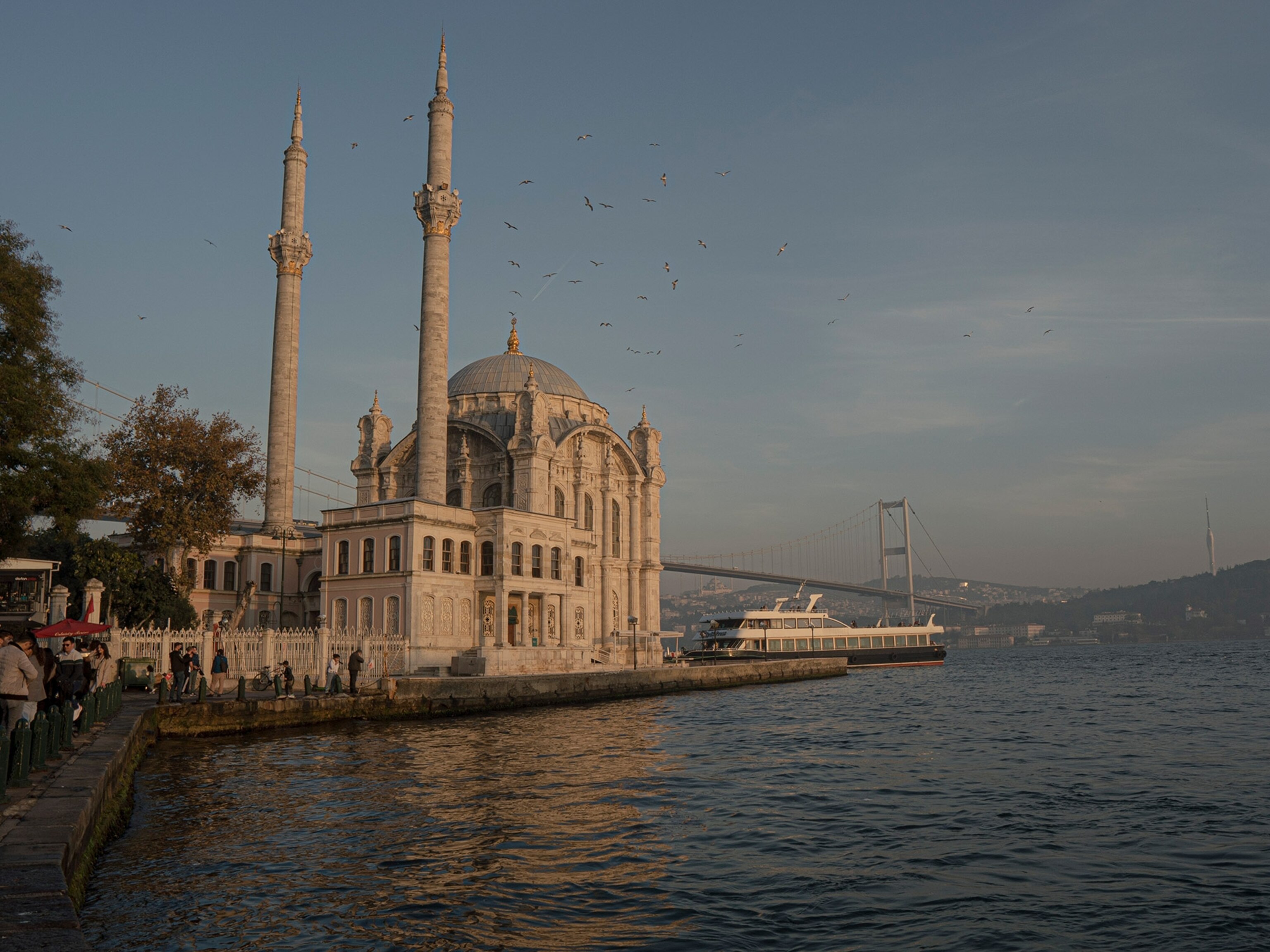
What can we learn from Istanbul’s 3,000 mosques?
- Environment
- Perpetual Planet
History & Culture
- History & Culture
- Mind, Body, Wonder
- Paid Content
- Terms of Use
- Privacy Policy
- Your US State Privacy Rights
- Children's Online Privacy Policy
- Interest-Based Ads
- About Nielsen Measurement
- Do Not Sell or Share My Personal Information
- Nat Geo Home
- Attend a Live Event
- Book a Trip
- Inspire Your Kids
- Shop Nat Geo
- Visit the D.C. Museum
- Learn About Our Impact
- Support Our Mission
- Advertise With Us
- Customer Service
- Renew Subscription
- Manage Your Subscription
- Work at Nat Geo
- Sign Up for Our Newsletters
- Contribute to Protect the Planet
Copyright © 1996-2015 National Geographic Society Copyright © 2015-2024 National Geographic Partners, LLC. All rights reserved
- Albalagh.net
- AnswersToFatawa
- Arij Canada
- Askimam.org
- Askmufti.co.za
- AskOurImam.com
- CouncilofUlama.co.za
- Darulfiqh.com
- Darulifta Azaadville
- Darulifta Deoband Waqf
- Darulifta-Deoband.com
- Daruliftaa.com
- DaruliftaaMW.com
- DaruliftaaZambia.com
- DarulIftaBirmingham
- Darulihsan.com
- DarulUloomTT.net
- Fatwa-TT.com
- Fatwa.org.au
- FatwaCentre.org
- HadithAnswers.com
- IslamicPortal.co.uk
- IslamicSolutions.org
- Jamia Binoria
- Mahmoodiyah
- Mathabah.org
- Muftionline.co.za
- Muftisays.com
- MuslimaCoaching.com
- Seekersguidance.org
- ShariahBoard.org
- Tafseer Raheemi
- TheMufti.com
- ZamzamAcademy.com
- BinBayyah.net
- Darul Iftaa Jordan
- Shafiifiqh.com
- HanbaliDisciples.com
- TheHanbaliMadhhab.com
- Ask Question
- Lailatul Qadr

Home » Hanafi Fiqh » Qibla.com » The Etiquette of Visiting
Related Q&A
- Entering house with the right foot
- Designing One’s Home with the Qibla in Mind
- Advising Those Who Don’t Handle the Qur’an With Proper Etiquette
- Manners of Visiting the Messenger of Allah (Peace and Blessings Be Upon Him)
- What is adab-e-gasht?what should we talk while giving adab-e-gasht?please reply in details?what are the adabs?
- The etiquette of seeking permission before entering
The Etiquette of Visiting
Answered by SunniPath Answer Service Team

Translated from “Aadabe Mulaaqaat”
Courtesy: Madrasah Arabia Islamia – Azaadville, South Africa
The Holy Qur’an commands: “When you enter homes, observe Salaam with one another – a Salaam of blessing and purity from Allah.” ( Surah Nur verse 61 )
1. Don’t enter anyone’s house or room without permission. You are obligated to seek their permission first. 2. The Islamic code of seeking permission specifies that one should stand close to the door, (knock) and thereafter say “ Assalaamualaikum wa Rahmatullahi “, may I come in? 3. If this does not elicit a reply, employ the same method of Salaam etc. a second and third time. After the third time, if you fail to get a reply, consider it an inopportune moment for meeting. There could be some valid excuse. Therefore, return and do not ever feel offended. 4. Whilst seeking permission to enter, stand on one side. Don’t stand in such a way that you can see inside. However, if the host is right in front of you, make Salaam and seek permission to enter. 5. It is despicable to peep inside. Rasulullah Sallallahu Alayhi Wasallam vehemently forbade this. 6. Observe Salaam loudly even when entering your own house and make your presence known to the occupants of the house. 7. If you are asked: “Who is there?”, give your name. Do not say: “It’s me!” because the occupant does not know who is “me.” 8. Rasulullah Sallallahu Alayhi Wasallam advised a Sahaabi thus: “Come and meet me every alternate day (and not daily) as this would increase our love for one another.” 9. Avoid visiting someone during meal or snack times. If you are compelled to visit at such times, first eat and then go. However, if you are unable to eat and go, then do not lie to the host that you have already eaten. Rasulullah Sallallahu Alayhi Wasallam said: “Do not bring lies and hunger together.” However, you may decline on some other pretext. 10. If you have to visit someone in another city or town, inform him before hand. 11. Rasulullah Sallallahu Alayhi Wasallam strictly forbade reaching someone’s home at night. In fact, he even forbade the people from returning to their own homes at night without informing their families. 12. When you enter someone’s home, enter with Salaam. The occupant of the house should make the first move when it comes to shaking hands or embracing. If he does not make the first move or he is busy, do not disturb him. 13. Do not observe Salaam when you enter a gathering in which a lecture or lesson is taking place, nor should you make Salaam when entering a Masjid in which people are engaged in Salaah or other forms of Zikr. However, if someone draws your attention, you should make Salaam silently. 14. When you enter someone’s house, do not sit at the best spot nor sit on a place especially reserved for the owner of the house. It is upto him if he wishes to seat you on his place or on any other appropriate place. 15. The Qur’an orders both men and women to lower their gazes. Be very particular about this at all times. When you go to someone’s house, do not look around. 16. Rasulullah Sallallahu Alayhi Wasallam advised us to be soft-natured and dignified. Always keep this advice in mind. If you go anywhere, speak gently and act in a dignified manner. Do not touch anything without permission. Do not stare at anything covetously nor act as though you are impressed and awe-struck with the host’s pomp and splendour, resulting in you suffering from an inferiority complex. 17. Do not sit nor converse for very long. Once your work is complete, seek permission to leave immediately. However, on the insistence of the host, you may remain until it is convenient for you.
When Others Come to your Place
“And when you are greeted with any greeting, offer a greeting more courteous than that or (at least) return the greeting. Verily, Allah Ta’ala takes careful account of everything.” ( Surah Nisaa Verse 86 )
When anyone comes to your house, you are Islamically obligated to give him a warm reception. Rasulullah Sallallahu Alayhi Wasallam is reported to have said: “A mu’min is he who honours his guest and is hospitable towards him.”
1. It is Wajib (compulsory) to answer to the Salaam. The Qur’an urges you to ensure that your reply is more superior, cultured and more vigorous than the Salaam of the other person. For example, if you are greeted with “ Assalamualaikum ” add on “ warahmatullah ” after “ waalaykumussalaam ” when replying. 2. The following words may be added to the Salaam or to the reply: “ warahmatullahi “, “ wa-barakaatuh ” “ wa-maghfiratuh. ” Rasulullah Sallallahu Alayhi Wasallam had promised ten additional rewards for every word added to the Salaam. 3. Be cheerful when welcoming your guest. Stand up and welcome him. Shake hands with him and if you are meeting him after some time. Embrace each other as well. Thereafter, seat him with respect. 4. The impoliteness of those who are impolite towards you is obviously incorrect but when they come to your door, ethics demand that you confront them courteously. Do not act peevishly. Meet them with a cheerful countenance. Converse in a cultured and dignified manner. 5. The Arabs have a charming custom of welcoming their guests with the following phrase: Ahlan wa Sahlan wa Marhaba , which figuratively means: “Make yourself at home. Everything you require is found and you are welcome.” 6. Employ your discretion in welcoming your guests. Determine their needs according to prevailing weather conditions etc. Endeavour to fulfil their needs before they even request you to do so. 7. Ascertain the habits of the guest in regards to his food, snacks, bathing etc. Make preparations for him according to his habit and disposition. This will comfort him whilst eliciting great rewards for you as well ( Insha Allah ). 8. Upon his departure, walk a little distance with the guest and bid him farewell. Allow him to take leave from you instead of you bidding him farewell first. 9. If you have some conveyance, offer it to the guest. 10. Whenever anyone took leave of Rasulullah Sallallahu Alayhi Wasallam , he would clasp the former’s hand with his own – out of love and affection – and he would continue holding the other person’s hands until the person himself drew his hands away. When bidding anyone farewell, he used to recite: “ Astaudi’ullaha Dînak Amânatak wa khawâtîma ‘amalik. ”
This answer was indexed from Qibla.com, which used to have a repository of Islamic Q&A answered by various scholars. The website is no longer in existence. It has now been transformed into a learning portal with paid Islamic course offering under the brand of Kiflayn .
Read answers with similar topics:
Random Q&A
I want my friend who is shia to convert to ahl al sunnah., throughout my work career i have tried to attain a halal job. at times i have felt as i have not done well in the job. sometimes slacking being lazy or even being rude to customers. is there any way i can purify my wealth, can we give zakat to any one who is sayyed, what are the pros and cons of using contraception for family planning, versions of the quraan, some time ago i made zina and a a child was born out of wedlock, i made sincere thauba and regreted my mistake. my child is now 4, more answers….
- Shortening prayers during ramadan
- One Prayer Instead of Thousands of Makeups?
- After I Make Ghusl, Sometimes Some More Fluid Comes Out. Does This Require Ghusl Again?
- Skin Disease & Washing Feet
- Does taking drawing money from one’s own company at market interest rates constitute riba?
- What’s wrong with Backgammon? RE: [Hanafi] The Fiqh of Sports and Games
Latest Q&A
- Is Makeup Allowed During Iḥrām?
- Do These Actions Formulate Disbelief?
- The Status of a Job Acquired with False Certification
- Can a Ḥanafī Resident Pray Behind a Shāfi’īe Traveller?
- Is it Permissible to Allow Wheelchairs in a Masjid?
- Is an Entry Fee at a Charity Event Considered Charity?
Indexed Websites
Privacy overview.

1-718-208-4590
905-487-8501, 0203-002-0934.

Importance of Manners in Islam – According to Quran and Sunnah
Manners are a way of doing something or way of behavior, etiquette or it could be a person’s outward way of behaving toward others. The issue of good manners is very important In Islam; it is the basis of one’s success in his daily life through which someone could make a distinctive place in the Islamic community. Dealing others with good manners means to put them at ease the way that Islam recommended us to deal with. It is not just the important part of our religion Islam but also makes our social life more pleasant. Conducting good manners is not easy because it takes time.
There is no one in a good manner than our beloved Prophet Muhammad (SAW). Allah Almighty said in Holy Quran: “And indeed, you are of a great moral character ” (Quran, 68:4). A Muslim can’t be a true Muslim if he does his all kinds of worships, i.e. prayer, fast, zakat, pilgrimage etc. in the best way but neglects an important side of his worship i.e. Adab or good manners. A person who offers his daily prayers in mosques timely and in a proper way, but when it comes to dealing with other people in his daily life he is the worst person, cannot be considered a true Muslim.

Holy Prophet (SAW) said about good manners in one of His hadith in these words: “Nothing is weightier on the Scale of Deeds than one’s good manners” (Bukhari). Allah Almighty made Him (PBUH) the best and perfect example for the people and sent him only for the purpose of perfecting good morals. The virtues of good manners are seen in various other hadiths which points to the good character that is pleasing to Allah Almighty and His Messenger Prophet Muhammad (SAW). Prophet Muhammad (SAW) reminded in other hadith that: “The most beloved of Allah’s servants to Allah are those with the best manners.” (Al-Bukhari)
Good manners or Adab consists of spreading words of peace, reviving broken relationships between people, involves praying for other Muslim brothers and sisters, advising and calling each other to do good and to stop which is evil. Good manners are about respecting parents, elders, neighbors and showing love and compassion to the young ones. Visiting the sick and abstaining from evils such as backbiting and slandering also includes in good manners. Allah loves those who possess these great qualities.
If someone wants to achieve success it is by good manners that every success can be achieved in this life. Good manners and sense of morality can prevent us from falling into sins. Allah Almighty says in Noble Quran: “Indeed in the Messenger of Allah (Muhammad PUBH) you have a good example to follow for him who hopes in (the Meeting with) Allah and the Last Day and remembers Allah much” (Quran, 33:21). So we all should ask Almighty Allah to make us follow the footsteps of the Prophet Muhammad (SAW) and deal with the people in a way that He (SAW) dealt with. Allah Almighty made it an essential part of the faith without which our faith cannot be completed. The Messenger of Allah (PBUH) says: “The believers most perfect in faith are those best in character.” (Tirmidhi)
In short, Manners are important to fulfill our faith and also in our social life. May Allah Almighty give us the strength to improve our manners and try to imitate them! Ameen
Related Posts

- +1 (718) 848-1222
- [email protected]

Etiquette of dressing in Islam – Understanding Islamic Clothing
1. You should wear a dress that covers and protects your body and meets the requirements of modesty, honor, and virtue.
Allah says in the Holy Qur’an:
“O children of Adam! We have sent unto you raiments to conceal your shame and to serve as protection and adornment.”
Of course, the dress’s purpose is to lend beauty and grace and serve as protection against climatic effects, but the foremost use of dress is to cover the body’s private parts.
You should also make sure that your dress, besides affording adequate protection against climatic conditions, should also be such that it should lend an aura of grace, elegance, and culture to your personality.
2. While putting on clothes, you should keep in mind that dress is a blessing which Allah has conferred on man only. It has been denied to all other living creatures. Offer thanks to Allah for this special favor and blessing.
3. You should wear a dress of the kind that the Shari’ah has prescribed for the believers, which does not display arrogance or pride, which does not lend a feminine air to men or a masculine appearance.
4. Put on a new dress with feelings of joy. Give some name to it when you don new apparel and acknowledge Allah’s generosity and blessing.
5. Take care to put on the dress with the right side first be it a right arm in the sleeve or right foot in pants and shoes. While taking off the boots, make sure to remove the left one first.
6. It would be best if you shook the garments before putting them on, lest there be deadly insects hidden in them which might harm you.
7. Wear a white dress. It is ideal for men, especially.
The Prophet Muhammad (PBUH) Observed:
“Wear a white dress. It is the best. You ought to wear white cloth in life and bury your dead in a shroud made of white cloth.”
8. The length of your pajama or pant should fall above the ankles.
The Prophet Muhammad (PBUH) holds such people as the doomed ones and deserving of severe torment which, out of pride and arrogance, let pajamas or pants fall below their ankles.
9. Do not wear silk. Garments of silk are befitting for females only.
The Prophet Muhammad (PBUH) has strictly forbidden men to wear female dresses or put on effeminate airs.
10. Women should not wear a thin dress that should make their forms visible, nor should they put on the tightly fitting dress, making their figures prominent and alluring.
11. Men and women should not adopt the same fashions in dress.
The Prophet Muhammad (PBUH) affirmed: “Allah sends curses on those men who adopt feminine fashions and on such women who adopt a masculine style.
12. Women must cover themselves with a scarf and keep their head and bosom veiled. They should not wear a scarf of such transparent stuff to reveal their hair.
13. Dress in keeping with your means and status. Do not dress up to show off the vanity and display an attitude of haughtiness towards others or make an indecent show off your affluence.
14. Avoid wearing a red, tacky, or resplendent dress or showy black or yellow apparel. Red, flashy, and resplendent dress is suited only to women, and even women should observe proper rules about wearing such clothing.
15. Always put on a simple, dignified, civilized dress and spend moderately on your clothes. Avoid luxury and extravagant finesse in matters o dress.
16. Give clothes to the needy by way of expressing thanks to the lord for having conferred to the bounty of the dress on you.
17. Give fine clothes according to your means to your servants who serve you day and night.
Sara International Travel (USA) is an Authorized and IATA-Accredited Hajj & Umrah Agency with the best and affordable hajj and umrah packages, founded in 1994 with the blessing of Allah SWT.
Quick Links
- Umrah Packages 2024
- Umrah 2024 Registration
- Umrah Essentials
- Privacy Policy
- Cookie Policy
- Booking Terms and Conditions
- Discover Islam
- Quran Recitations

- Islamic Etiquette
Etiquettes of dialogue and speech -I
- Section: Towards Others

Islam came to instil and spread fine manners and noble etiquettes. When in conversation or discussion, a Muslim must maintain these because Islam comprehensively addresses all aspects of life, and requires a Muslim to be distinct in his character, creed, worship, manners, etiquettes and appearance.
Undoubtedly, Islam is the superior and lofty religion. There can be no doubt that its legislation is the final one and the finest amongst all revealed legislations.
This issue is vital and must be borne in mind when addressing our Lord, when speaking to people of knowledge, when conversing with friends, when talking to one's spouse, and when in a public gathering. If the manners and etiquettes of speech disappear, people’s gatherings will become futile and fruitless, and a source of enmity and hatred.
People often carelessly utter words, some of which may include or imply transgression of the limits of Islam. Such negative words may even be about Allah, or an objection to His decree, or the like, which would lead the person uttering them to the Hellfire.
Statements from the Salaf regarding controlling and guarding the tongue: There are many statements that came in this regard, such as the words of Ibn Mas’ood, may Allah be pleased with him: “That which requires imprisonment the most is one's tongue.” [End of quote] This is why many scholars have written books about the excellence of remaining silent.
The etiquettes of dialogue and speech: There are many etiquettes that Islam legislated and encouraged, which reflect the magnitude of this topic. The following are some of these etiquettes:
· Lowering one's voice: Allah Says (what means): “…And lower your voice; indeed, the most disagreeable of sounds is the voice of donkeys.” [Quran 31: 19] Raising one's voice reflects a lack of manners, unless the need arises, such as when delivering a Khutbah, or when warning someone, or teaching, or when it is feared that those at a distance may not be able to hear. On the other hand, one's voice should not be so low that people can hardly hear, nor should it be monotonous, as this instigates boredom on the part of those listening, which can cause them to lose interest altogether.
Etiquettes of dialogue and speech -II
Etiquettes of dialogue and speech -III
Related Articles

Reconciling people
Engage in dialogue before you argue, building a society characterized by solidarity - i.

- Islamic Songs
Special Folders
- Hajj & Umrah
- Xmas & New Year's
- Sacred Months
- Inheritance
- Prayer Times
- Calendar Converter

Copyright © IslamWeb 2024. All rights reserved.


13 good Etiquettes and manners of eating and drinking in Islam
Islam teaches us about every aspect of life. Similarly, our Holy Prophet Muhammad (PBUH) clearly outlined the manners of eating in Islam. The Holy Quran also teaches us about the etiquette of eating and drinking, which benefits us in the best way. Here are some etiquettes and manners for consuming food and drink in Islam.
Getting ready to eat: –
The etiquettes and manners of eating in Islam begin by preparing ourselves. We must wash our hands thoroughly before we touch the food. According to the sunnah of eating and drinking, we must rinse our mouths well thrice before we sit down for the meal. Nowadays, while covid-19 is so rampant, people realize the importance of washing hands. Whereas Islam taught us the importance of washing hands more than 1400 years ago.
Manners of sitting while eating: –
Islam is a religion that advocates utmost respect and best conduct. When it comes to etiquette and manners of meals, it teaches us to sit while eating. We must not stand while eating, as Allah has created us as humans, not animals. Animals stand while eating. Similarly, we must not lean back or lie down while eating as it signals arrogance. Islam teaches humility. That is why the sunnah of eating is sitting on the ground with folded legs or bent knees. Even science supports this posture of eating as it aids in better digestion.
Drinking manners in Islam: –
Etiquettes and manners particular to drinking in Islam are very clear. We must not drink while standing. However, when you go for Hajj ad drink water from the well of Zamzam, that is the only water you must drink while standing. During your hajj services lessons, you would learn that this is a gesture to pay respect and homage to the water of Zamzam. We must drink water in three gulps steadily instead of rushing and drinking a glass full at once.
Talking while eating: –
While many people believe it is against the etiquette of eating and drinking, there is no prohibition in Islam about talking while eating. Meal times are often the only times when the whole family gets together. It is a good occasion to talk about important matters, connect with your loved ones, and discuss all the happenings of the day. However, we must be careful not to talk while chewing food as it might get into the windpipe, causing choking. We must wait to complete the morsel and then speak.
Eating halal food: –
Etiquettes and manners about food are not limited to the way of eating. Islam also teaches us about choosing lawful food. Things such as alcohol, pork, wrongly slaughtered meat, and food prepared through unlawful income are not halal. A Muslim must be careful to consume halal food.
Begin your food with the name of Allah: –
Etiquettes and manners cannot be complete without the name of Allah. Whatever we do, we must start with the name of Allah. Eating and drinking must also begin with Bismillah. Allah adds barakah to every action that begins with His name. When we say Bismillah before eating and drinking, we get the best health benefits from the food.
Eating with the right hand: –
We must eat with the right hand according to the sunnah of eating and drinking. Prophet Muhammad (PBUH) emphasized greatly using the right hand to eat and drink, for the devil uses his left hand to eat.
Sunnah of eating: –
The Holy Prophet (PBUH) taught the believers to be respectful toward the food. He encouraged people to eat together and share their meals. One must not keep the best part of the meal for oneself but rather present it to everyone. We must not eat food hastily. We must chew every morsel well enough. This also prevents bloating and indigestion.
Supplications before and after the meal: –
Etiquettes and manners of eating and drinking also require Muslims to supplicate to Allah. By remembering Allah at such a time when we quench our thirst and satiate our hunger, it pleases Allah immensely. Also, we must offer our gratitude to Allah for his provisions.
Appreciating the effort of the one who cooked the food: –
Islam teaches morality and caring for each other. Etiquettes and manners of eating in Islam include appreciating the one who cooks the food, be it your mother, wife, father, sister, or anyone. If your friend invites you for food, you must thank him or her. Even if you do not like the food, it is strictly prohibited in Islam to use bad words for the food or express displeasure.
Eating in moderation: –
Prophet Muhammad (PBUH) taught Muslims to eat in moderation. Islam does not encourage eating excessively. According to a hadith, a believer must eat three-fourths of his stomach and keep one-fourth empty.
Do not make the food wait for you: –
Prophet Muhammad (PBUH) also taught us to eat food as soon as it is served. Even if you hear the call to prayer and food is served, it is better to eat the food first and then offer prayers.
Prohibition of using gold and silver utensils: –
Prophet Muhammad (PBUH) strictly advised Muslims against using utensils made from gold and silver. These precious metals are for the people who live in heaven. They will consume food in exquisite utensils. Hence in this world, a believer must live his life modestly and avoid such luxurious utensils.

Our Price Beat Guarantee Policy is not only to match the competition but also to beat the price.
Information
421 7th Ave #1211, New York, NY 10001
+212 244 1818
- Hajj Packages
- Umrah Packages
Do you want to open this link in the HalalTrip Mobile App?

- Halal Restaurants Near Me
- Halal Dishes Near Me
- Mosque Near Me
- Airports Near Me
- Attractions Near Me
- Home Based Businesses Near Me
- Where to Travel in 2024
- Halal Travel Blog
- Halal Travel Podcast
- City Guides
- Featured Destinations
- Destination Marketing
- Halal Travel Guides
- Travel Videos
- Explore Uzbekistan
- Explore Brunei
- Explore Indonesia
- HalalTrip Gastronomy Awards
- Mastercard Benefits Program
- Halal Holiday Packages
- Halal Friendly Hotels & Serviced Apartments
- Cruise Ship
- Qibla Direction
- Prayer times for flights
- Local Prayer Times
- Travel Etiquettes
- Foodie Awards
- Halal Travel Mobile App
- Ramadan 2024
- Productive Muslim Retreat
- HalalTrip 40
- Advertise With Us
- Travel Tips & Etiquettes
The Etiquettes of Eating - Did You Know?

Getting Ready for a Meal

Make Sure the Food is Halal

Etiquettes to Follow While Eating

Once You Are Done Eating

General Etiquettes of Eating

Leave a comment

Thank you Alif-yar for your suggestion.

Hazrat Aisha Siddiqa narrates that the Messenger of Allah, peace and blessings be upon him, was eating together with his six companions when a villager came and finished the meal in two bites. This food would have been enough for all of you. For complete blogs click on link. https://www.alifyar.com/khana-ikathy-ho-ker-khana-chahye
Likes ×

IMAGES
VIDEO
COMMENTS
Here are 12 etiquettes of travelling according to Islam! Introduction: Honoured Status Of A Traveller. Abu Hurairah reported that the Messenger of Allah said: "Three supplications are answered without doubt - the supplication of the oppressed, the supplication of the traveller, and the supplication of the parent for his son." (Tirmidhi, Abu Dawud) If such be the lofty status of a ...
Etiquettes of travelling in Islam. There are many points of etiquette to be followed by the traveller, which the scholars have compiled. One of those who compiled these rulings well was An-Nawawi (may Allah have mercy on him), in his book Al-Majmu` (4/264-287), where he mentions sixty-two points of etiquette.
Travel: Etiquette and Rulings Travel: Etiquette and Rulings unfollow follow . 49885 21-02-2024 Is Combining Prayers when Travelling Permissible? 21-02-2024 views : 225796 ... Islamic Etiquettes During Travel 02-10-2011 views : 47410 Hukm al-Hajj wa'l-'Umrah (rulings on Hajj and 'Umrah) ...
If you have never thought of it — and it's normal to overlook this! — here is some essential Islamic etiquette when traveling the next time with your family and friends, InshaAllah. 1. Fulfil Your Responsibilities and Settle Your Debts if Any. Before you begin your journey, fulfill whatever responsibility is required for your role.
To perform Haj or Umra. If one were travelling to a place other than the Haramain Sharifain, then too one could intend that one's travel is so that one becomes accustomed to travel to the Haramain Sharifain. 10. To visit the pious servants of Allah (Subhanahu-Sa-Tha'ala) in the different parts of the World and learn from their advice. 11.
The Prophet stated some etiquette and manners every Muslim should follow in case of travelling: Ads by Muslim Ad Network. It is recommended to recite the dua` of traveling. It is Sunnah to offer two Rak`ahs before traveling. It is Sunnah to make du`a before leaving your house. In his book Al-Fiqh Al-Islami wa Adillatuhu (Islamic Jurisprudence ...
Along the way, she committed more faux pas than she can remember—all good learning experiences in Muslim etiquette, of course, in her effort to become bi-cultural. Salamalicum. God be with you الله يكون معك. If you are going to travel in the Muslim world, set aside your familiar occidental habits and embrace the local etiquette.
The point is, do not make your absence of travel be an excuse for you to escape your responsibilities. It will not only affect your reputation personally but also the reputation of Islam. Etiquette #2: Intent And Purpose Must Not Be Blameworthy. Generally, as in any deeds in Islam, ensure that the intent and purpose of your travel is not ...
The Intention for Travel. Before embarking on a journey, it is important to have the right intention. Muslims should make the intention to travel for a valid reason, such as seeking knowledge, performing Hajj or Umrah, visiting family or friends, or doing business. The intention should be sincere and for the sake of Allah (SWT).
1) Set the right intentions. Islam sets the utmost importance in setting our intentions right before we set out on any act. This can be seen through the Hadith of Prophet Muhammad s.a.w. that says "The deeds are considered by the intentions, and a person will get the reward according to his intention." (Bukhari) A simple everyday act of eating ...
What is the etiquette of visiting in islam? "My love is true and inevitable for those who do not cut their relations with their relatives and friends." (Ibn Hanbal, V, 229) It is the requirement of being a Muslim and the brotherhood of Islam to visit people and ask about their state. Allah the Almighty has declared all Muslims as brothers ...
The Importance of Good Manners in Islam: 1. Reflecting Faith: Good manners are considered an integral part of practicing Islam, as they reflect a person's faith and devotion to Allah. It is believed that those who possess good manners have a deeper connection with their Creator. 2.
16450. Etiquettes pertaining to Travel. 106453. He does not take his mother to the Sacred Mosque because he fears for her, but she goes with the driver. 25-12-2007. views : 8790. Mahram to Travel with Women. 97879.
Support Us. The Al-Islam.org site and the DILP are entirely supported by individual donors and well wishers. If you regularly visit this site and wish to show your appreciation, or if you wish to see further development of Al-Islam.org, please donate online. IMPORTANT : All content hosted on Al-Islam.org is solely for non-commercial purposes ...
With night effectively turning to day, if you do intend to travel to a Muslim-majority place during Ramadan, do what the locals do. Sleep in the early part of the day and stay up late into the ...
1. Welcoming guests nicely. 2. Entertaining guests with fruitful talk, for this is a form of hospitality. 3. Serving the food according to one's means, without going to extreme in showing hospitality. 4. Giving advice in a polite way, especially if the guest gets into saying something Haram..
Etiquette: 1. It is Wajib (compulsory) to answer to the Salaam. The Qur'an urges you to ensure that your reply is more superior, cultured and more vigorous than the Salaam of the other person. For example, if you are greeted with " Assalamualaikum " add on " warahmatullah " after " waalaykumussalaam " when replying. 2.
It is not just the important part of our religion Islam but also makes our social life more pleasant. Conducting good manners is not easy because it takes time. There is no one in a good manner than our beloved Prophet Muhammad (SAW). Allah Almighty said in Holy Quran: "And indeed, you are of a great moral character " (Quran, 68:4).
Providing a comprehensive view of Islam and Muslims to cultivate peace, promote universal values, and dialogue among civilizations since 1995
1. You should wear a dress that covers and protects your body and meets the requirements of modesty, honor, and virtue. Allah says in the Holy Qur'an: "O children of Adam! We have sent unto you raiments to conceal your shame and to serve as protection and adornment." Of course, the dress's purpose is to… Continue reading Etiquette of dressing in Islam - Understanding Islamic Clothing
Etiquettes of dialogue and speech -I. Islam came to instil and spread fine manners and noble etiquettes. When in conversation or discussion, a Muslim must maintain these because Islam comprehensively addresses all aspects of life, and requires a Muslim to be distinct in his character, creed, worship, manners, etiquettes and appearance ...
Whereas Islam taught us the importance of washing hands more than 1400 years ago. Manners of sitting while eating: - Islam is a religion that advocates utmost respect and best conduct. When it comes to etiquette and manners of meals, it teaches us to sit while eating. We must not stand while eating, as Allah has created us as humans, not animals.
General Etiquettes of Eating. 1) Be polite and courteous of your eating companions. Do not take something for yourself alone, always share with everyone else and make sure everyone else is happy and satisfied as well. 2) Do not eat excessively, until you feel like you cannot move. Only take as much as you can eat, and eat only as much as you need.